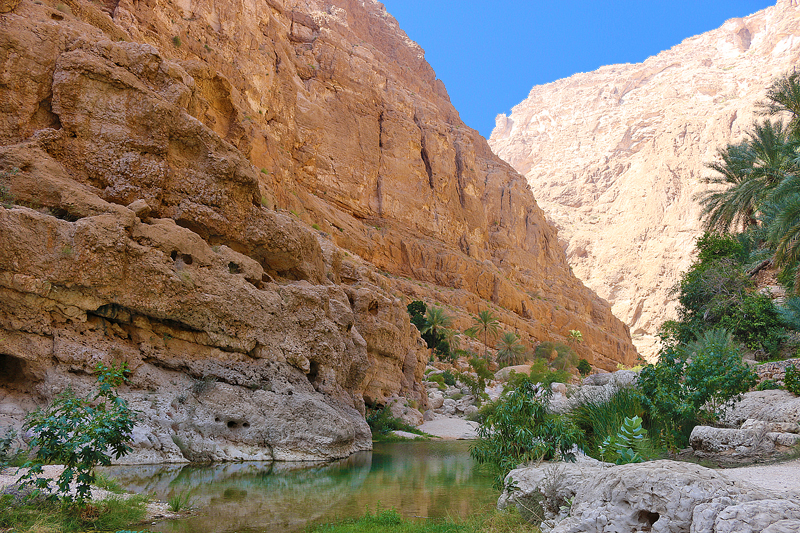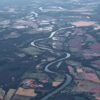After being the lone passenger on a short boat ride across the water, I ventured inland in the area of the Al Sharqiyah Region of Oman which is known as Wadi Shab — and the further I hiked, the hotter and drier the air seemed to become.
Wadi Shab in Oman: A Photographic Essay of the Trek Inland
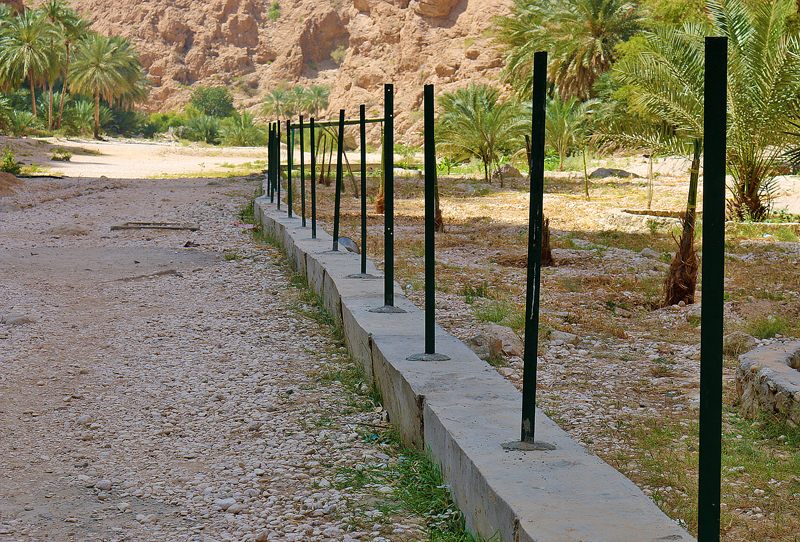
Although guided hikes into Wadi Shab are available for a fee, I chose to venture inland by myself.
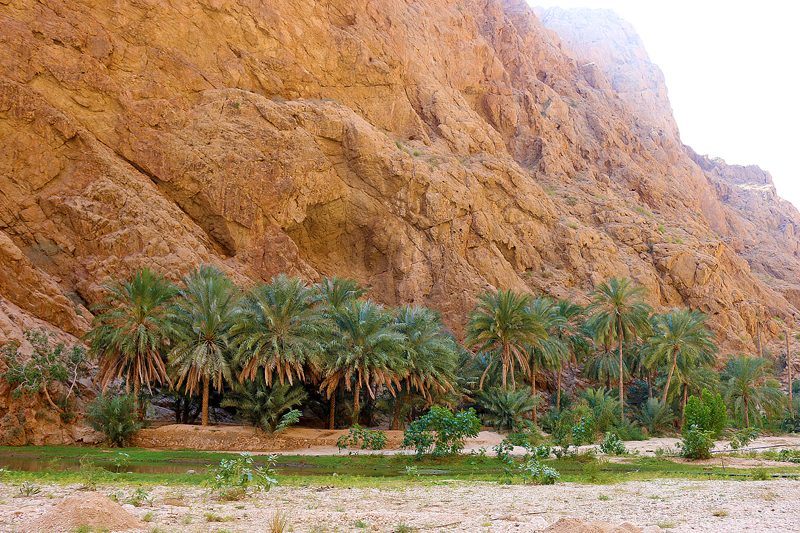
I passed by this grove of palm trees…
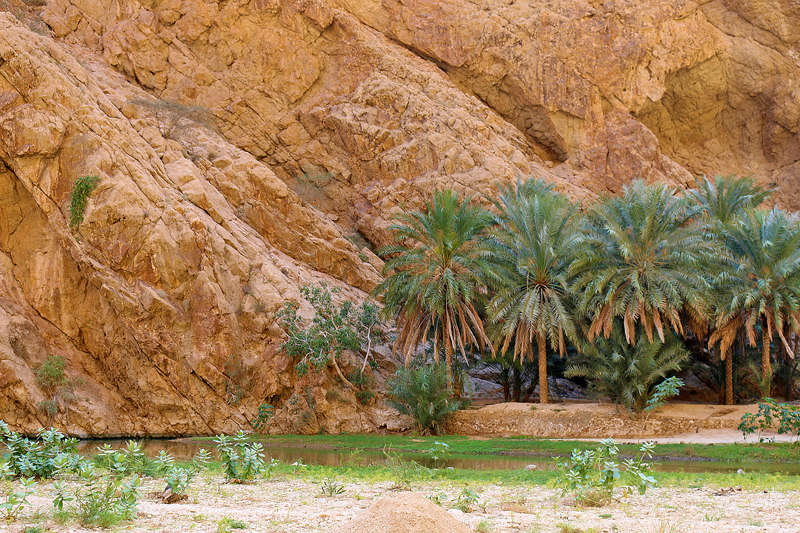
…which had a pool of water adjacent to it. I did not know whether the pool was temporary from a recent rain or permanent.
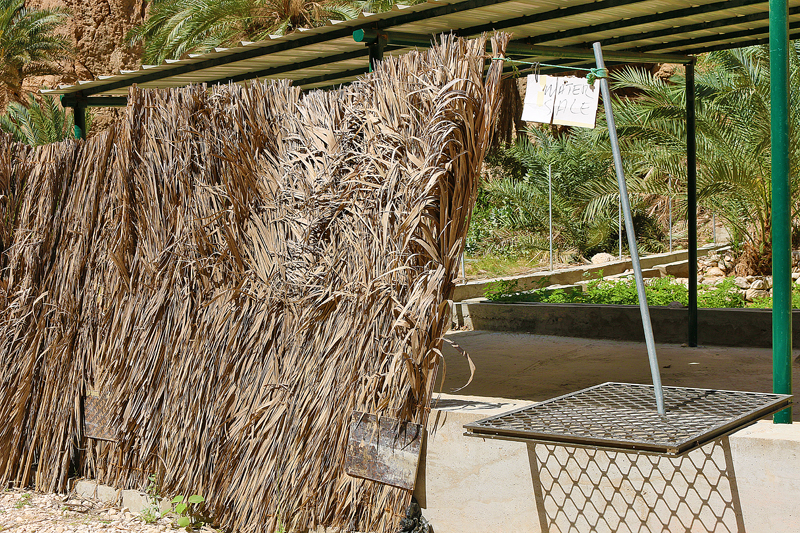
I then passed what appeared to be an unoccupied stand of sorts…
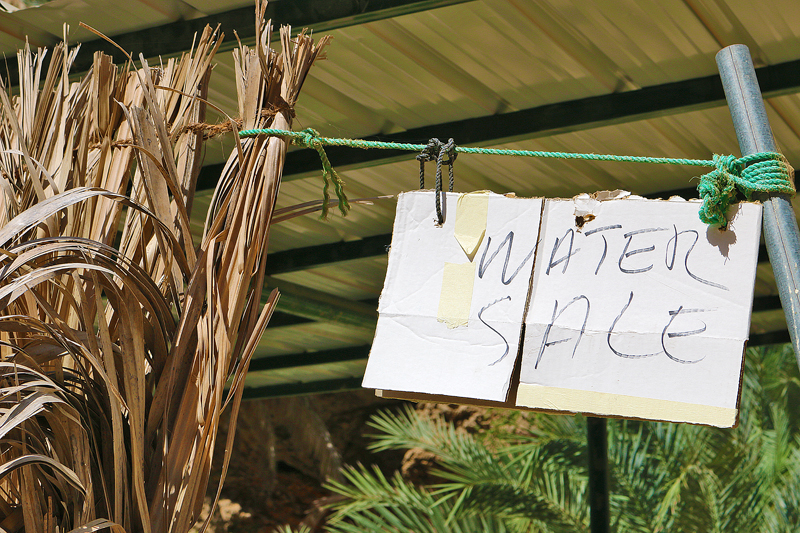
…whose proprietor apparently sells water to visitors.
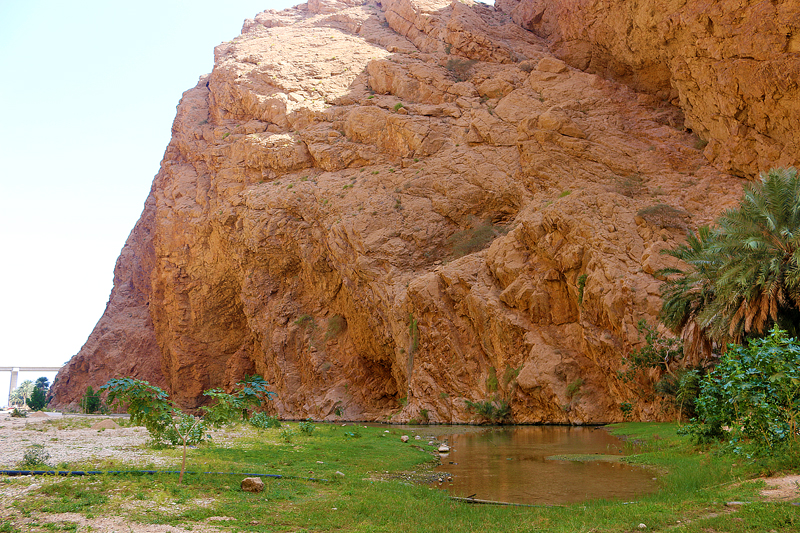
When I reached the other side of the aforementioned pool of water adjacent to the grove of palm trees, I turned around and looked back towards the Gulf of Oman to admire the view — which included the overpass which supports Highway 17.
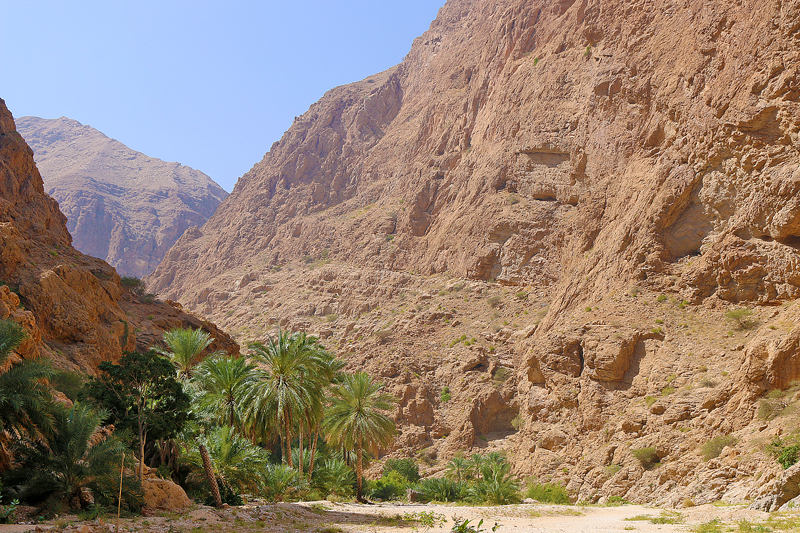
I turned back around and continued my hike inland; and I saw more of the rocky mountains.
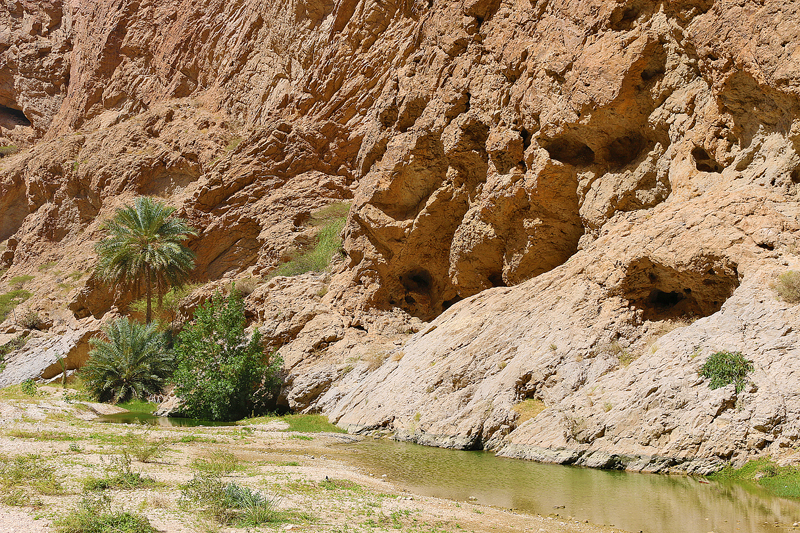
I passed by more pools of water — some of them were no bigger than mere puddles.
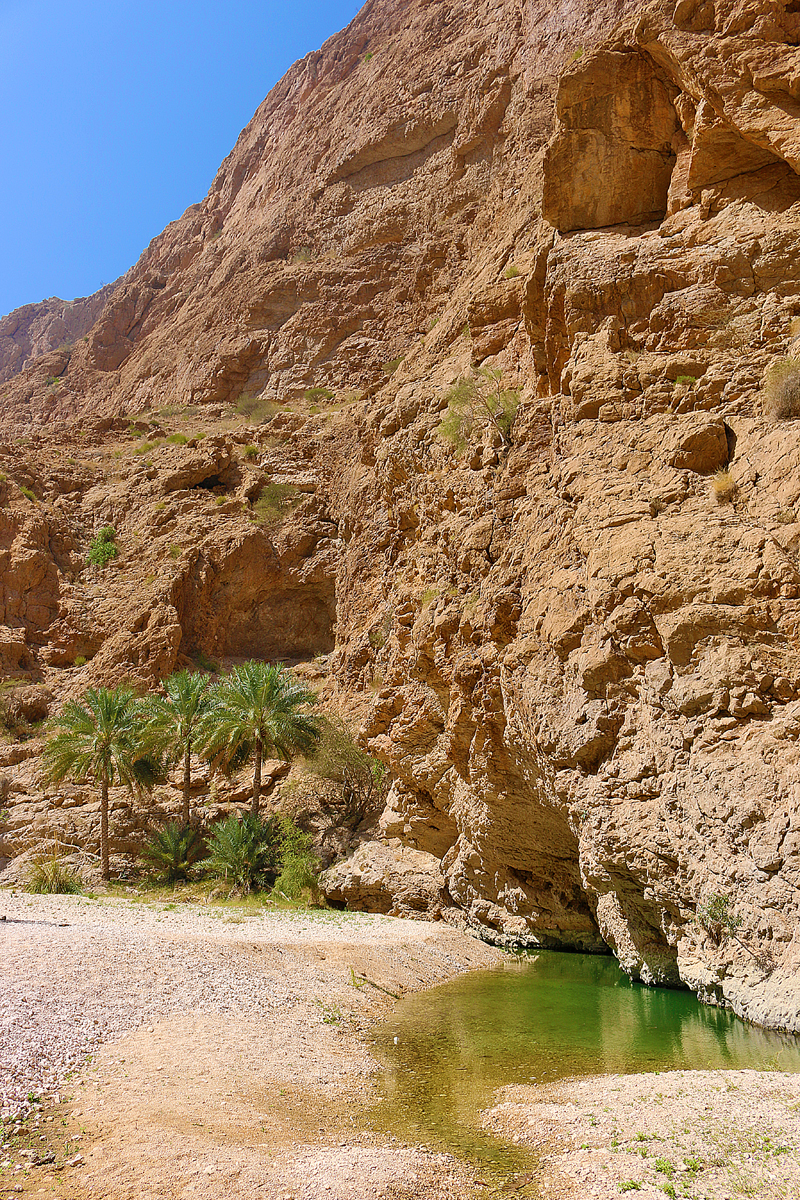
As I passed some smaller groups of palm trees — and more water…
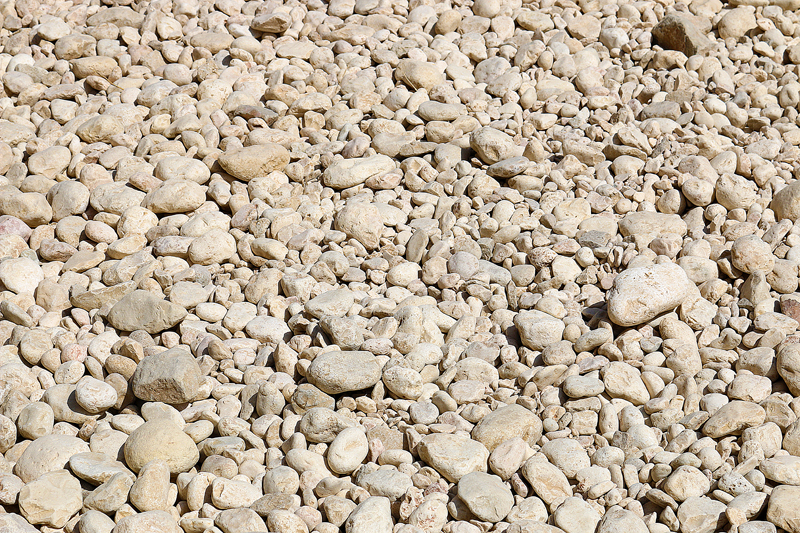
…the ground slowly transitioned from sand to smooth ivory colored pebbles and rocks as they crunched below my feet.
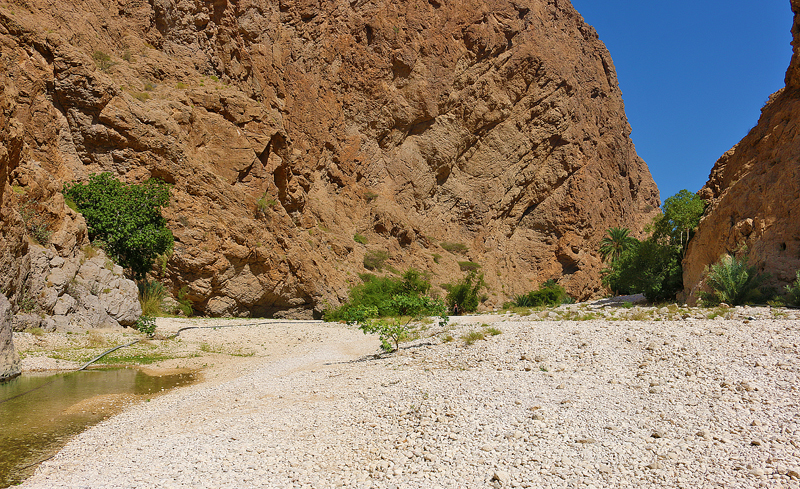
At this point, I began to see why Wadi Shab is also known in English as the Gorge Between Cliffs…
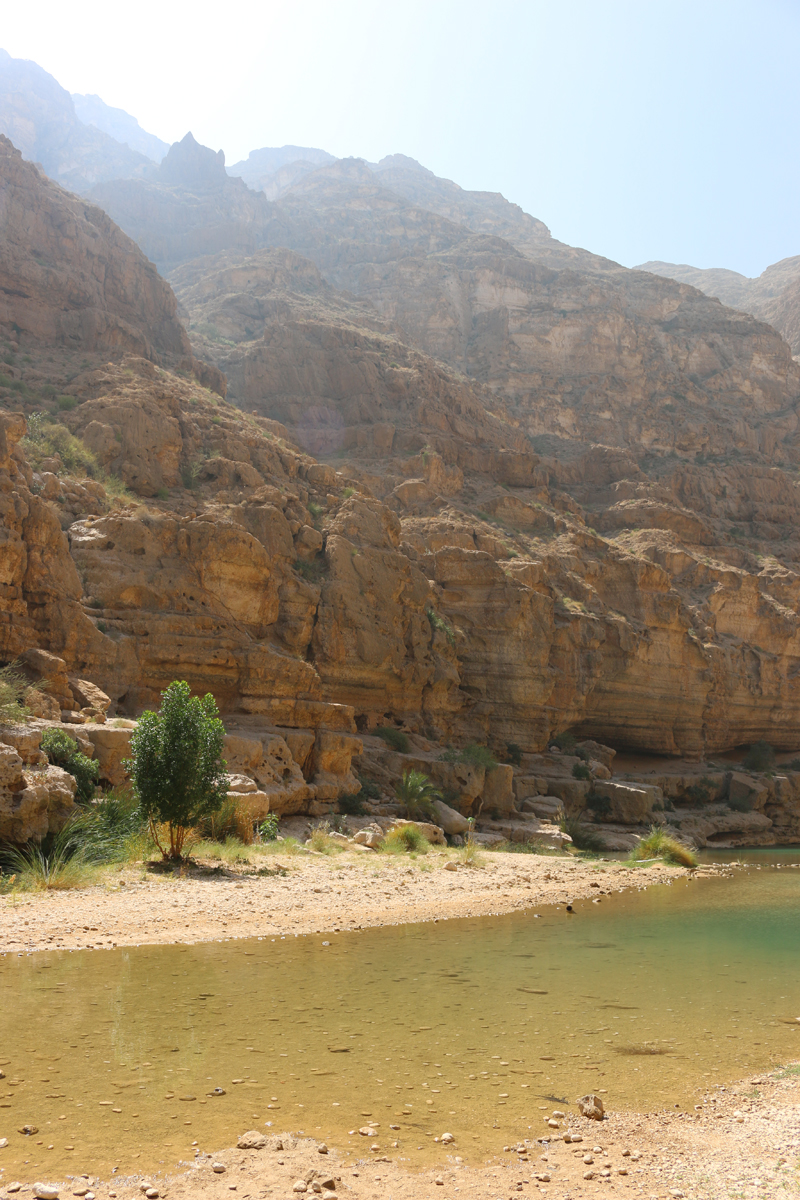
…and the views were picturesque — especially where the water contrasted the dry rocky slopes of the gorge.
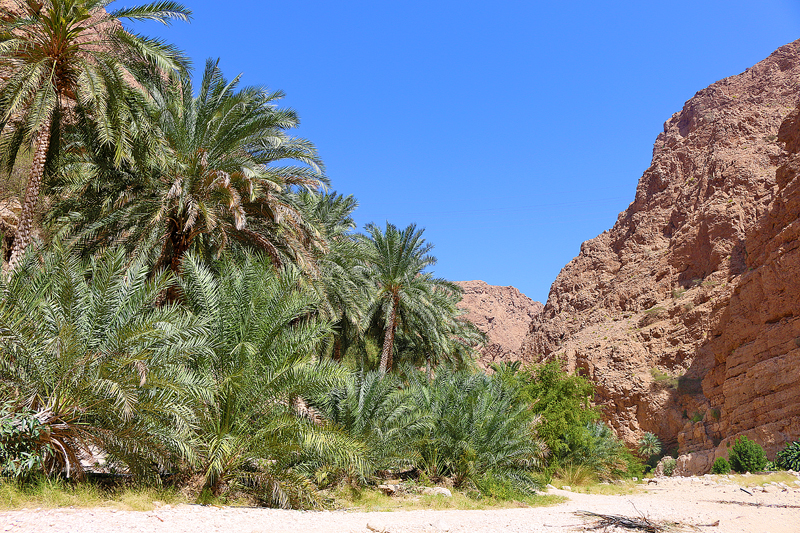
I passed yet another grove of palm trees — although I have no idea whether they are indigenous to the area. My guess would be not.
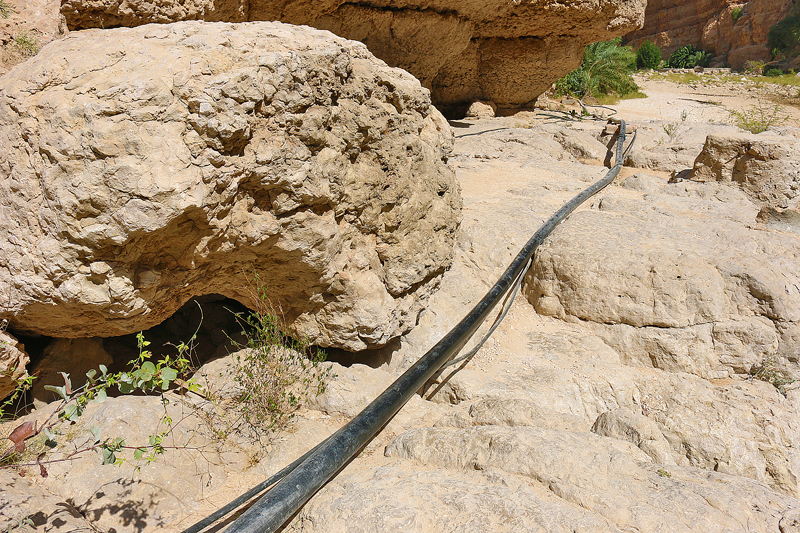
Tubes, pipes, cables, and other unnatural objects which have been created by man ruin some of the beauty of the landscape within Wadi Shab.
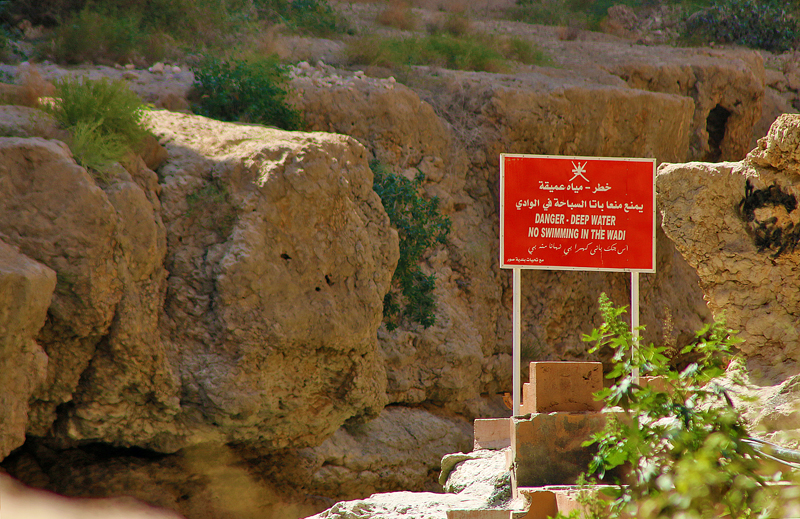
Although some of the pools of water appear to be refreshing — especially after hiking in the heat — signs warn in both English and Arabic not to swim in the wadi due to deep water…
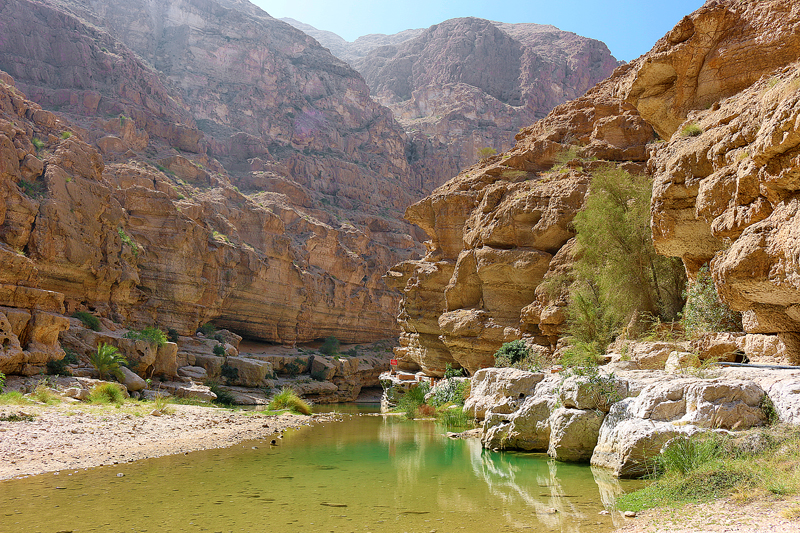
…even though the water did not appear to be deep.
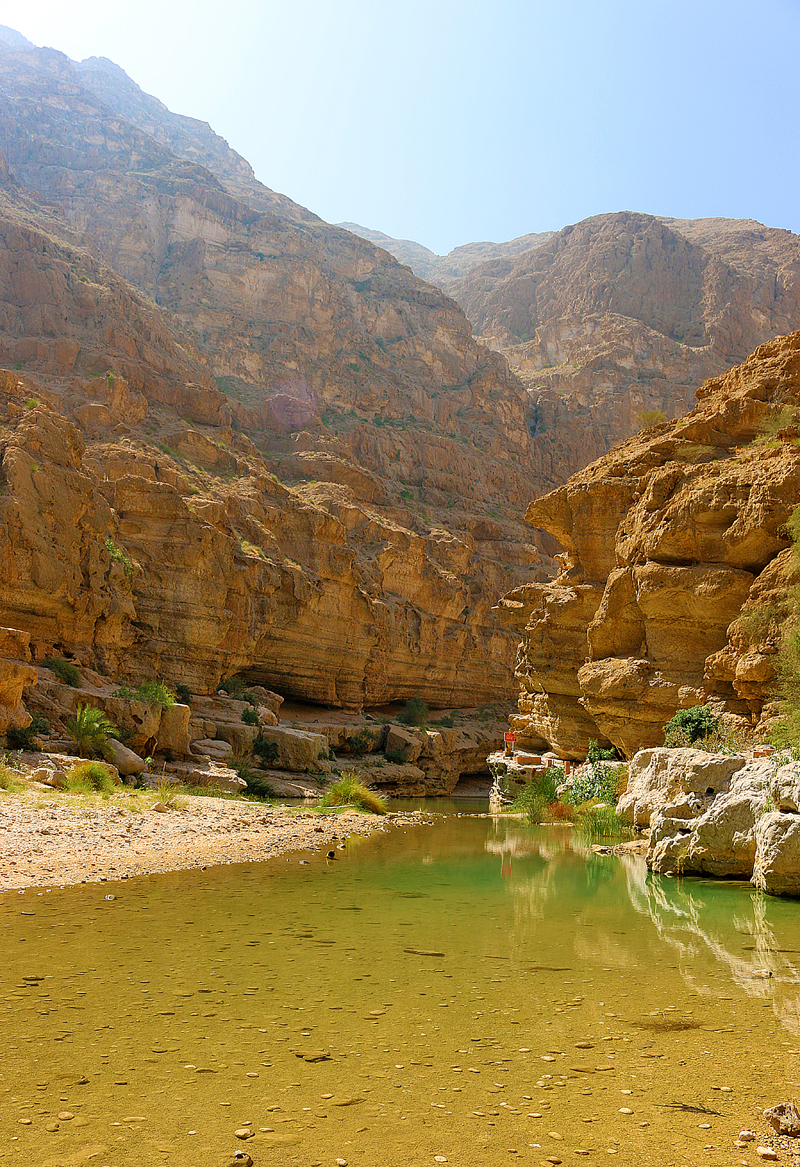
Could the perceived lack of depth in the wadi be an illusion — or, perhaps, a mirage — in the desert?

The rich green wadi and the pink sandstone walls of the gorge created quite a palette of colors…
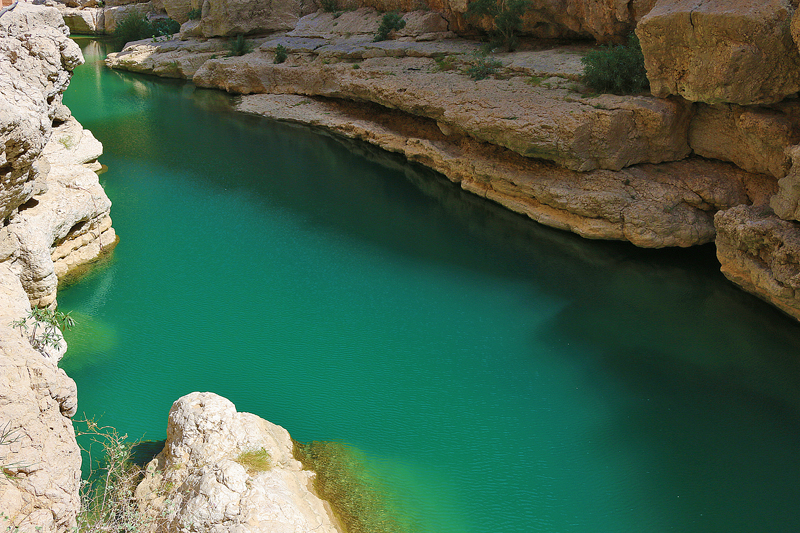
…and the turquoise green color of the water varied — depending on both the way the sun shined on it and what was in the water.

The message which is printed on this sign is completely in Arabic with no English translation — but based on the icons on the sign, it is likely another warning not to swim in the water.
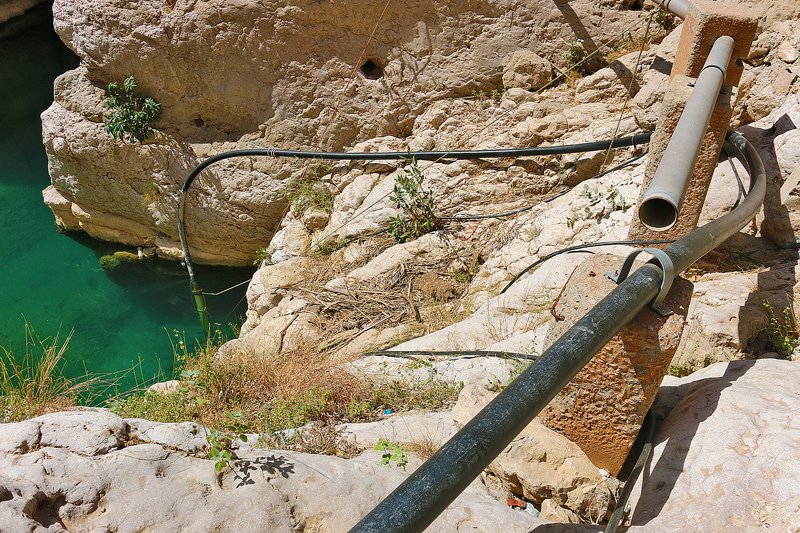
More artifacts litter the landscape within Wadi Shab — but they apparently serve their own purposes.
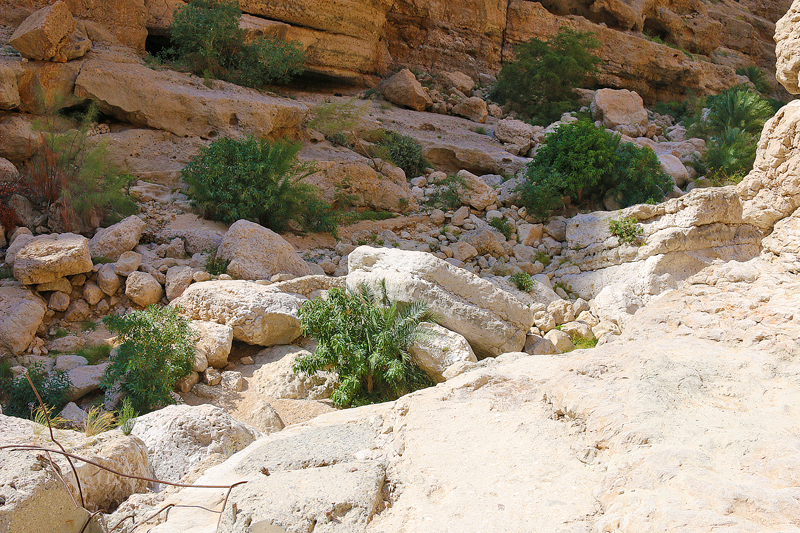
Still, plenty of natural beauty abounds within Wadi Shab…
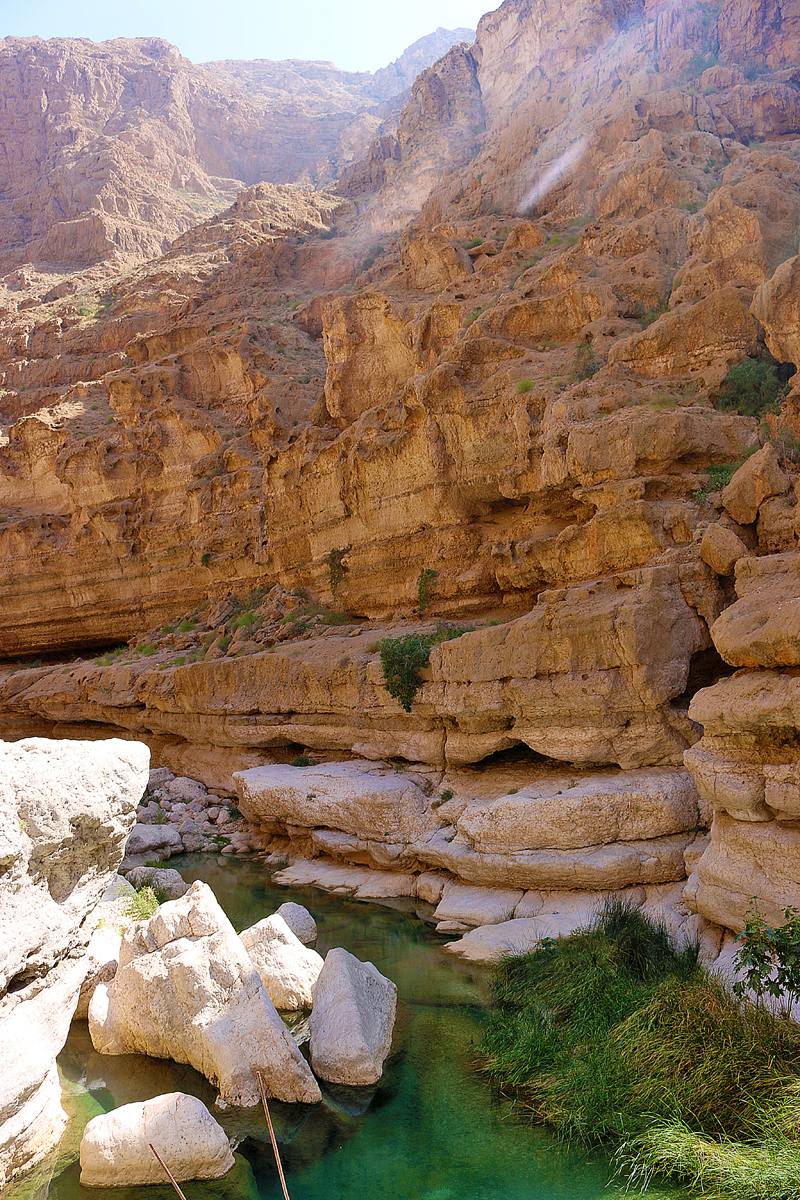
…including more pools of deep green water and spectacular views of the vistas of pink mountains in the distance.

Some parts of Wadi Shab reminded me of the vast terrain found in western parts of the United States.
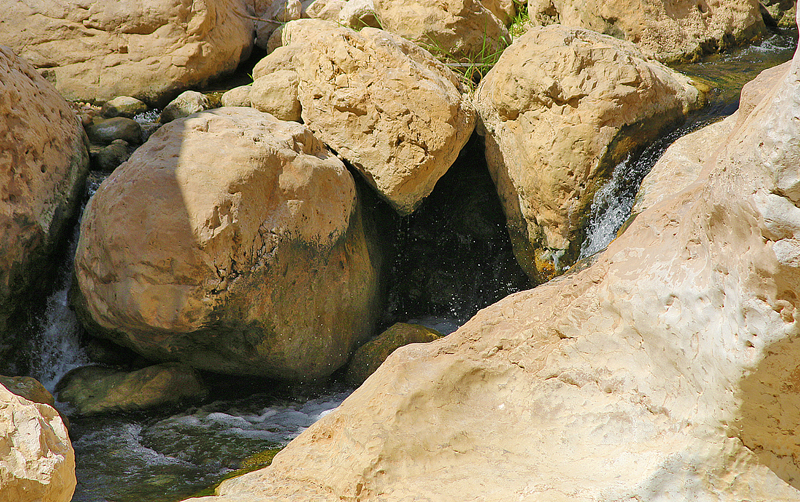
Look closely and you will see small waterfalls among the huge rocks…
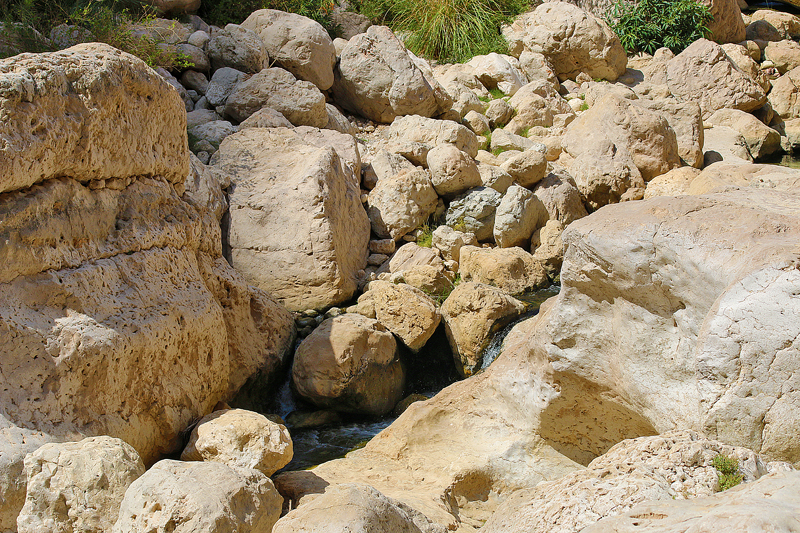
…as well as hear the water flow through them.
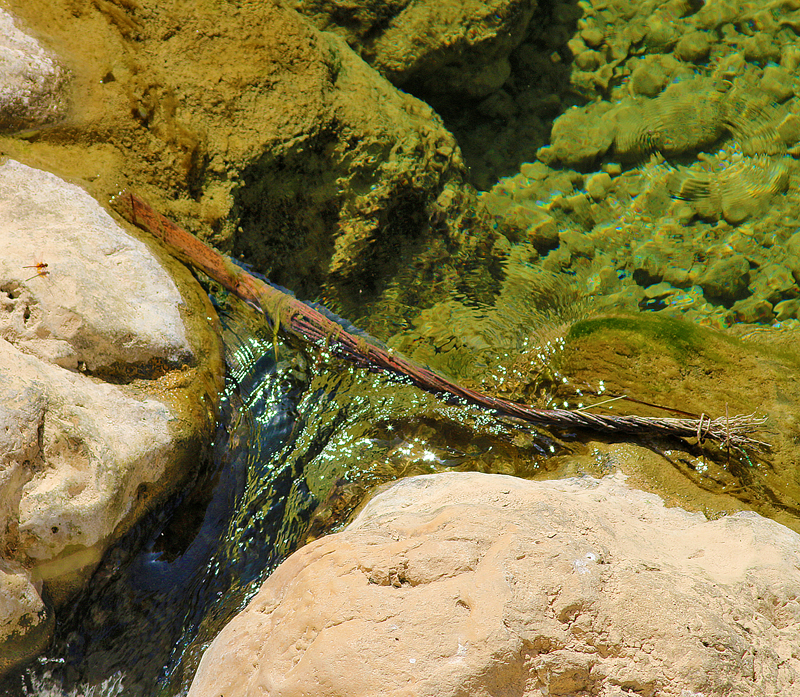
What appeared to be a remnant of the twisted rusting wires of a cable rested on the rocks with the water moving underneath it.
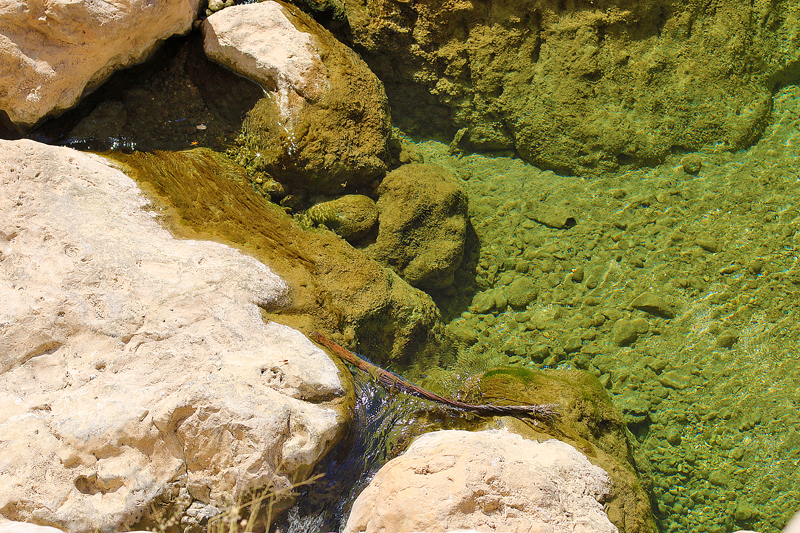
This pool of water must have been permanent, as indicated by the green algae found under it.
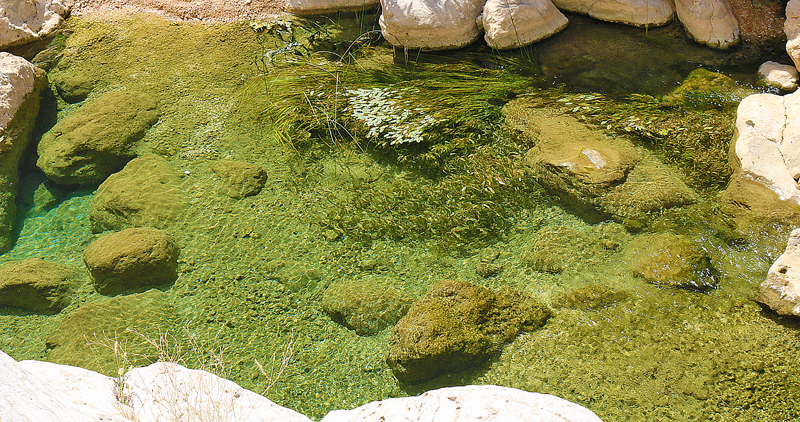
The green algae covered both the rocks and the bed of the pool itself.

The interesting rock formations offered a nice contrast to the ironically lush green vegetation and pool filled with algae.
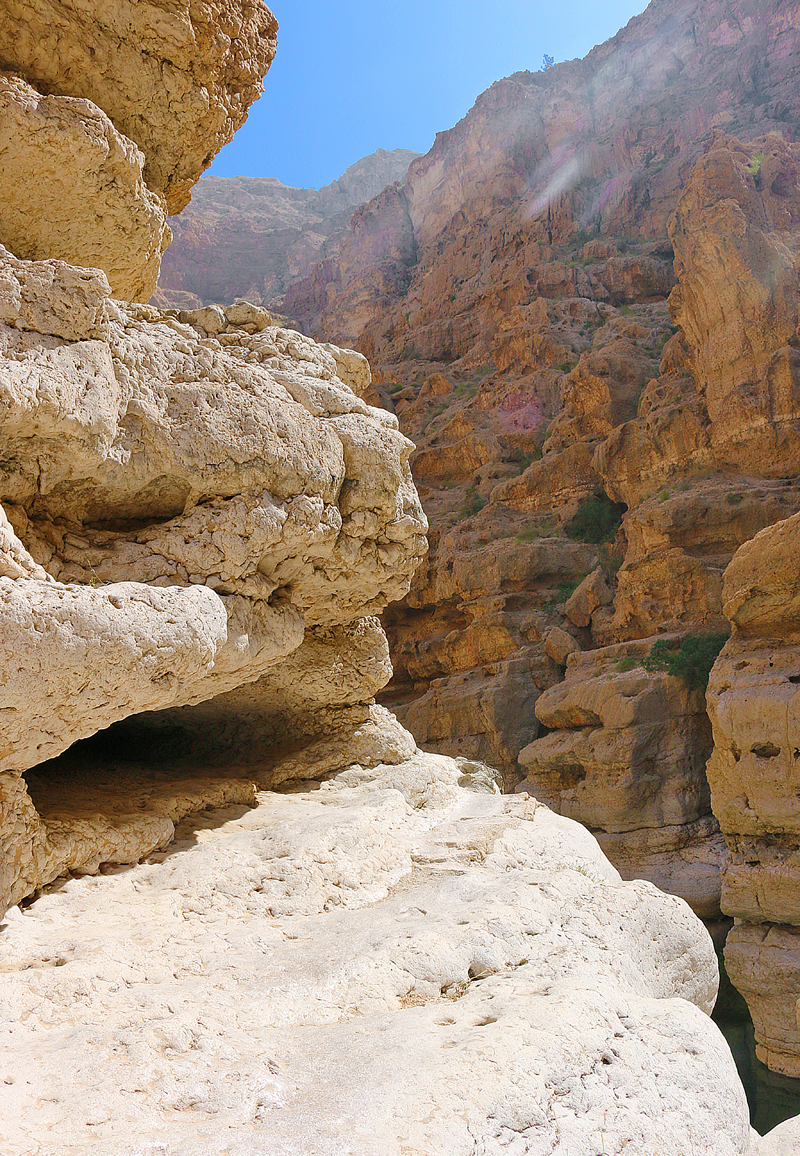
Many parts of the gorge were indeed gorgeous — especially as it narrowed as I hiked further inland…
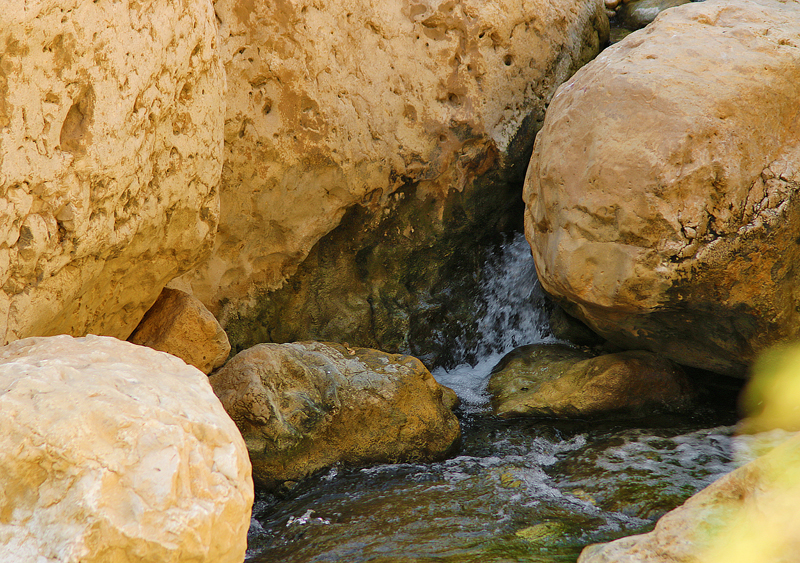
…with more small waterfalls offering a break in both the quiet solace of Wadi Shab and the rocks.
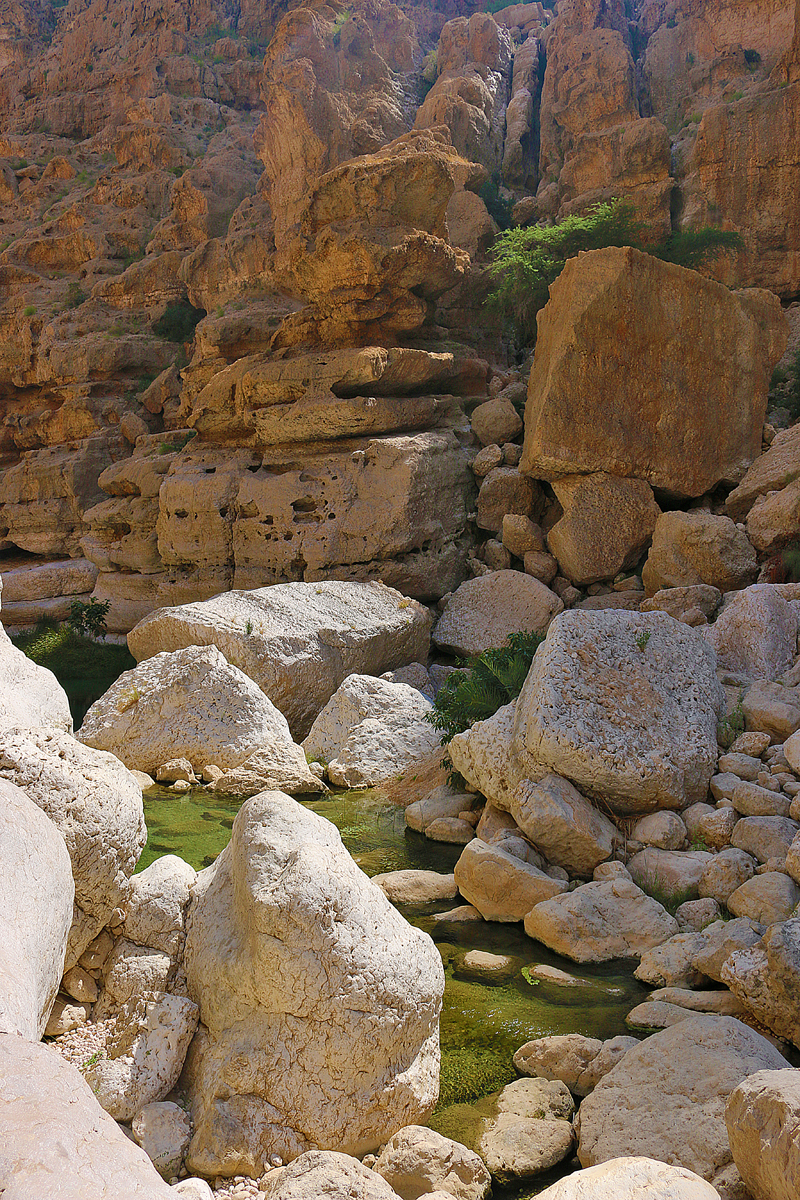
At some points during my hike inland, I could not help but stop and appreciate the natural serenity which surrounded me…
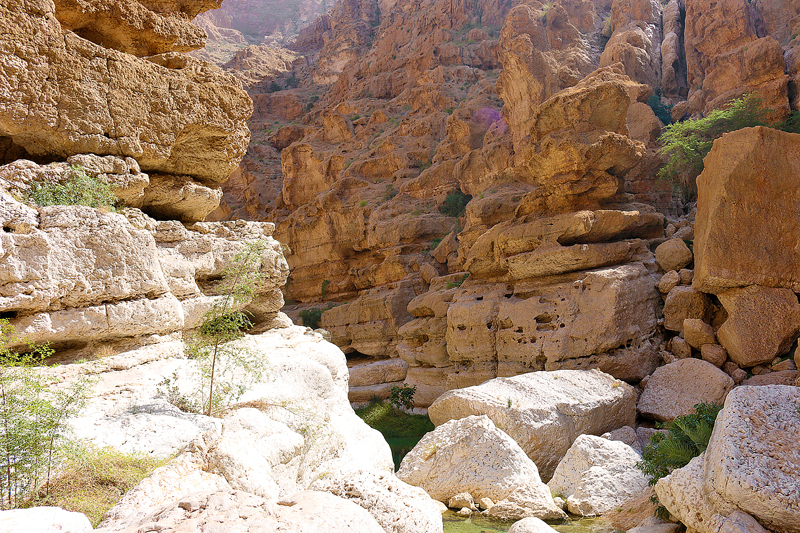
…including in areas where hiking was not as easy to do as near the entrance of Wadi Shab…
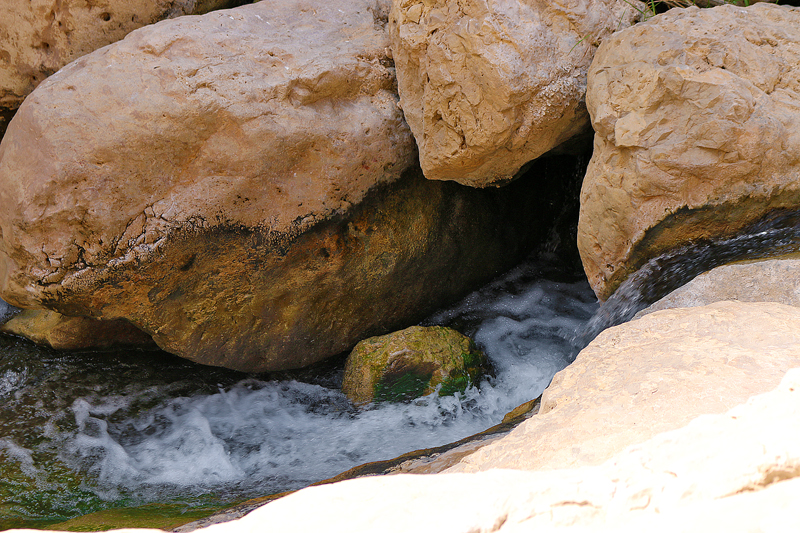
…but the rewards of discovering even the most simplest of wonders were well worth the time and effort of the hike.
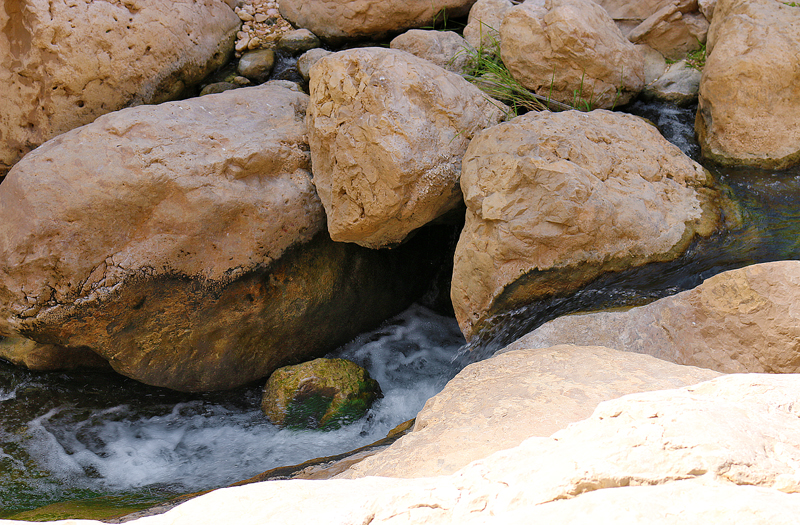
At this point, for example, I sat on an outcropping of large rocks to listen to nothing but the tranquil rush of water which meandered its way through the gorge.
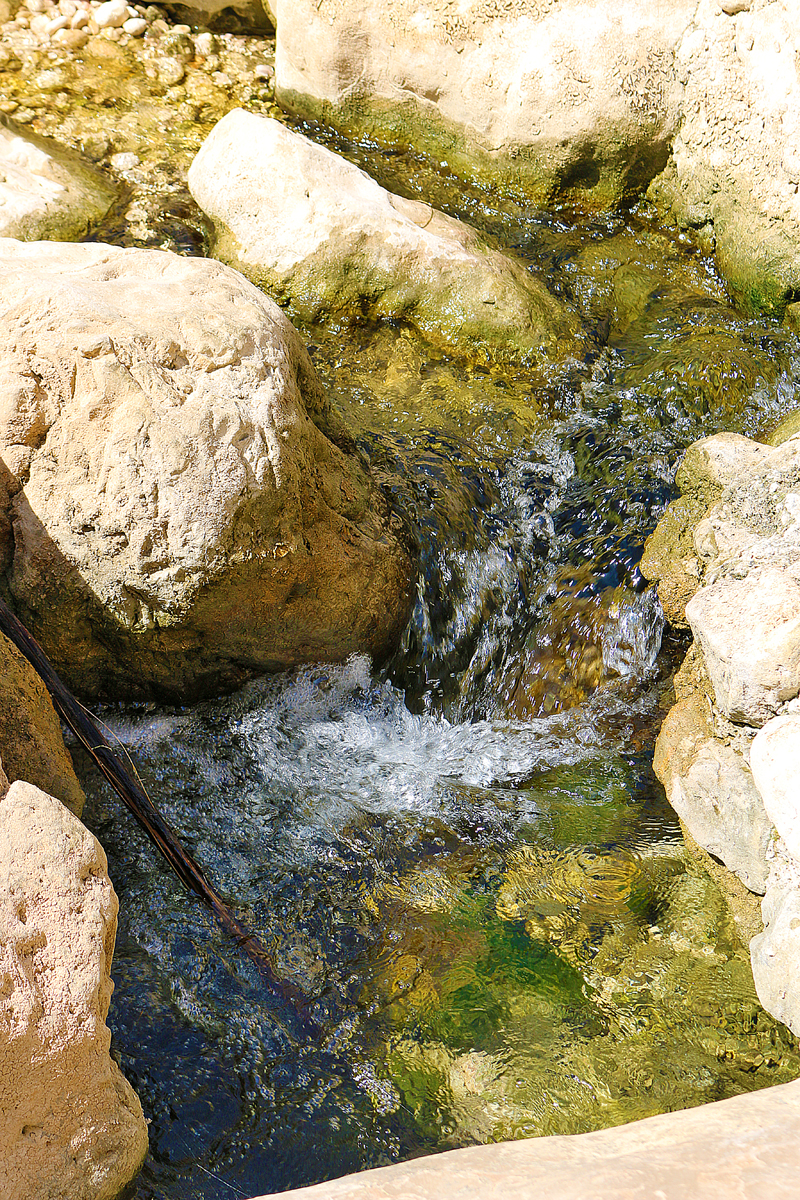
Water flows over much of this section of cable near a small waterfall.
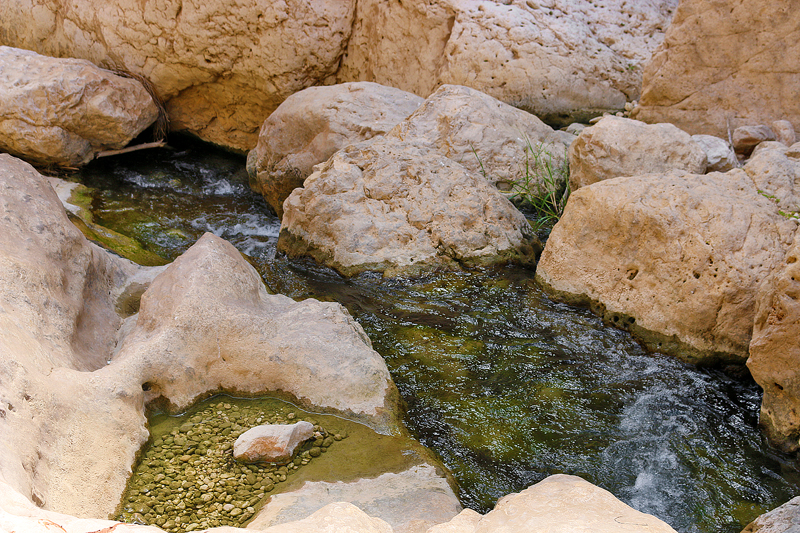
Thankfully, numerous shady parts of Wadi Shab — combined with the sound of the rushing water — help to cool visitors off should the blazing sun become unbearable…
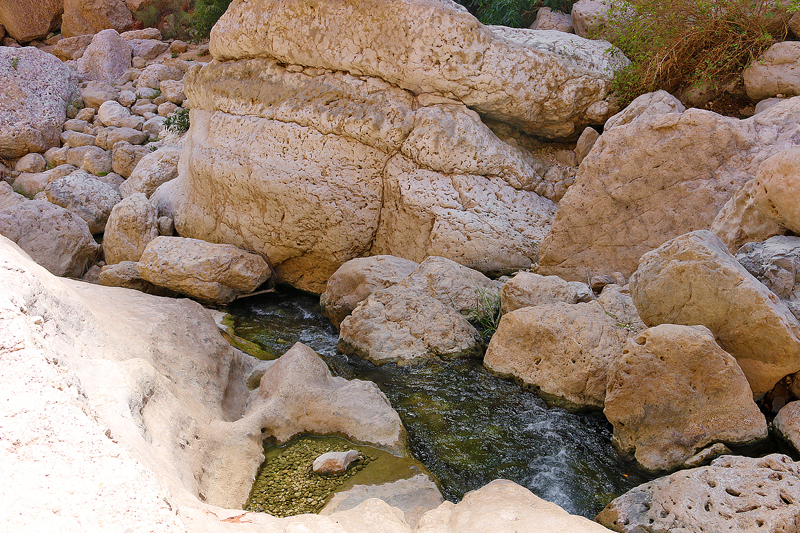
…as well as offer a moment to reflect on whatever happens to be on one’s mind.
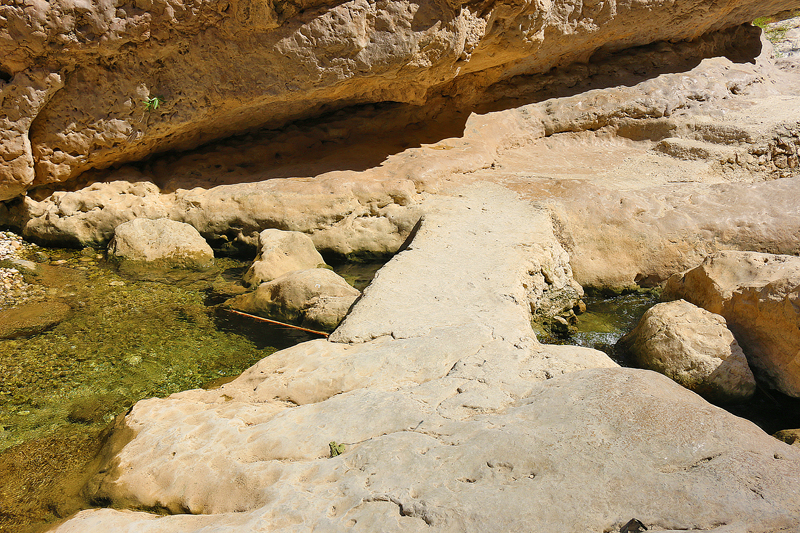
Look closely, and you can see parts of Wadi Shab which are not natural. For example, the color and texture of this flat surface is different than the rock to which it is attached, which suggested to me that this feature was artificially added for the aid of hikers.
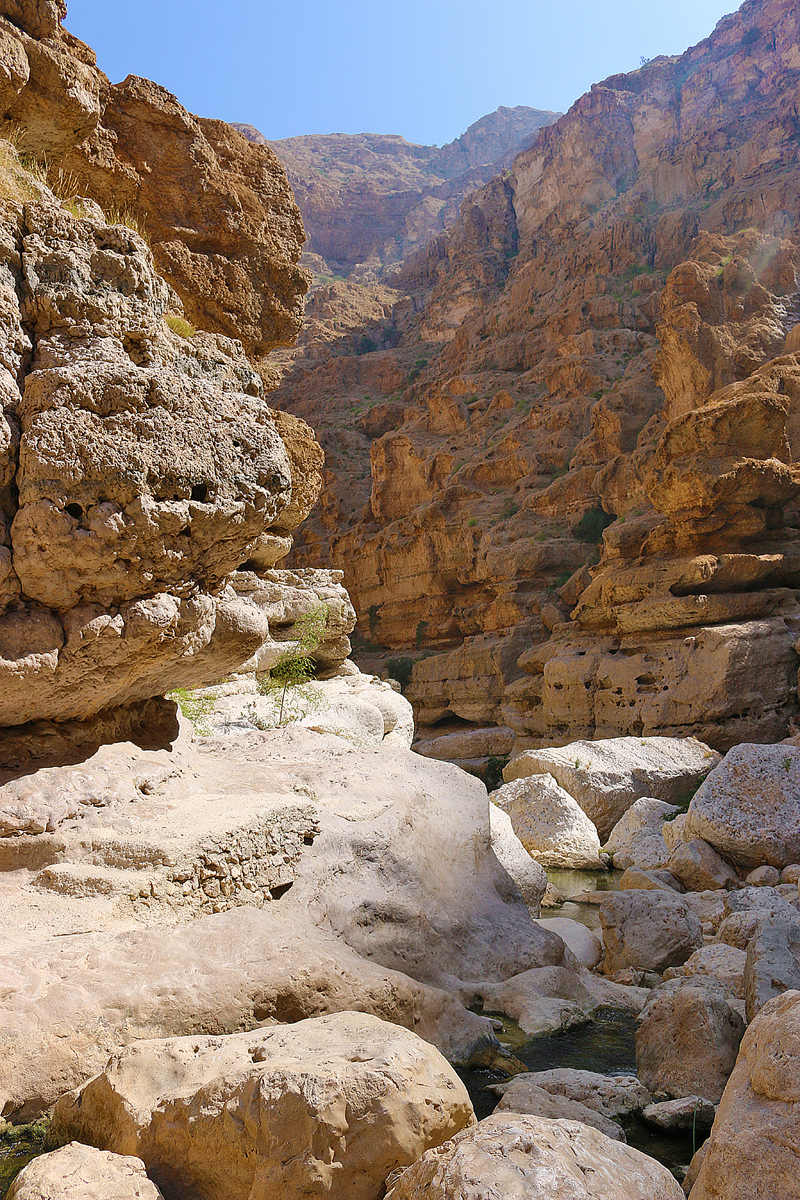
Can you find another example of a feature which was obviously artificially added to an otherwise strikingly scenic landscape?
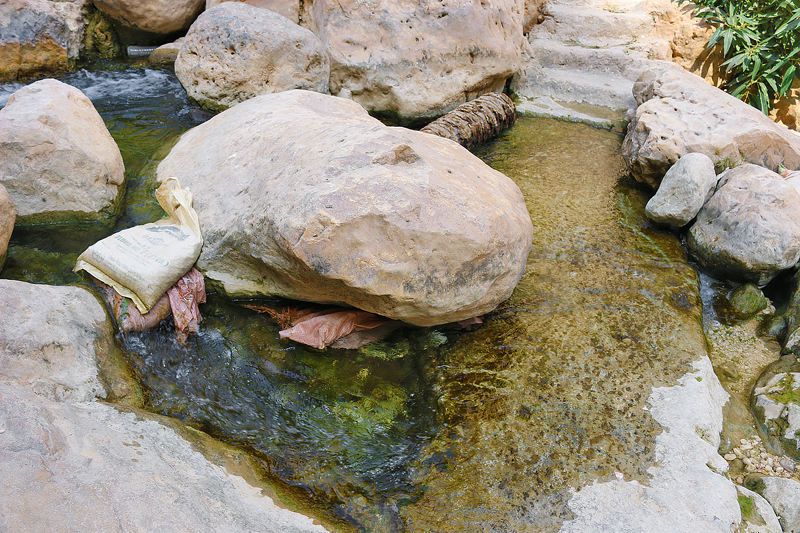
Sandbags and what appears to be useless pink plastic bags resist the flow of the water.
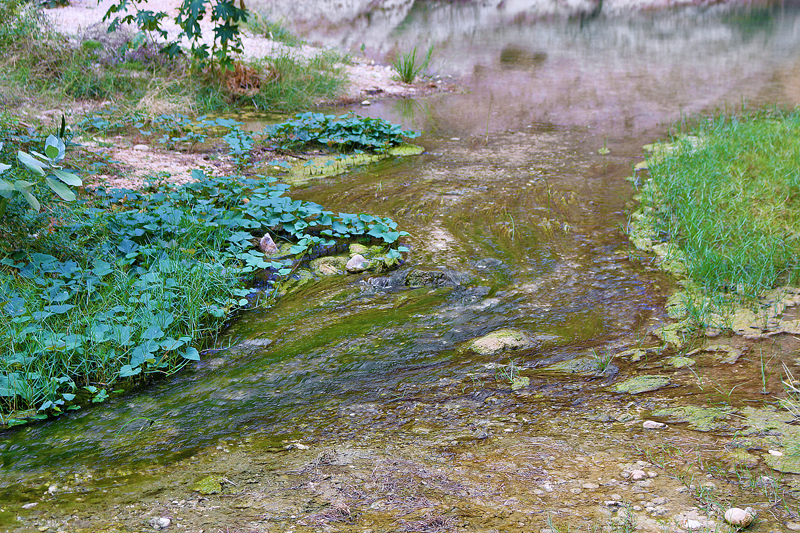
This naturally lush part of Wadi Shab appears to belong in a completely different part of the world…
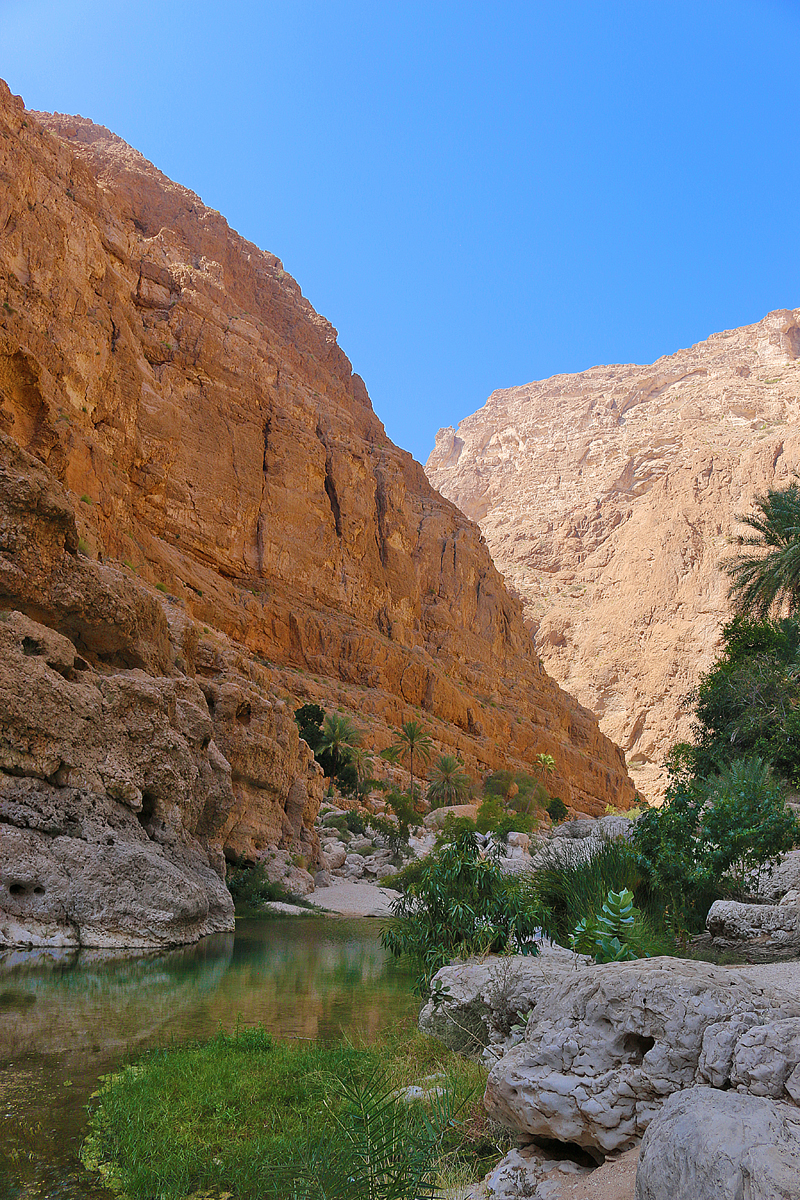
…and yet, the cerulean sky completes the palette of vibrant colors which are found in Wadi Shab.
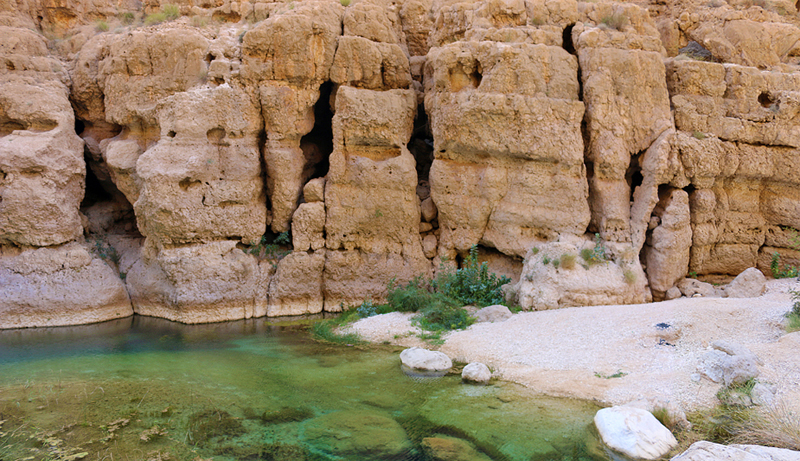
The photograph shown above illustrates another section of Wadi Shab at which I stopped, as I found it quite peaceful.
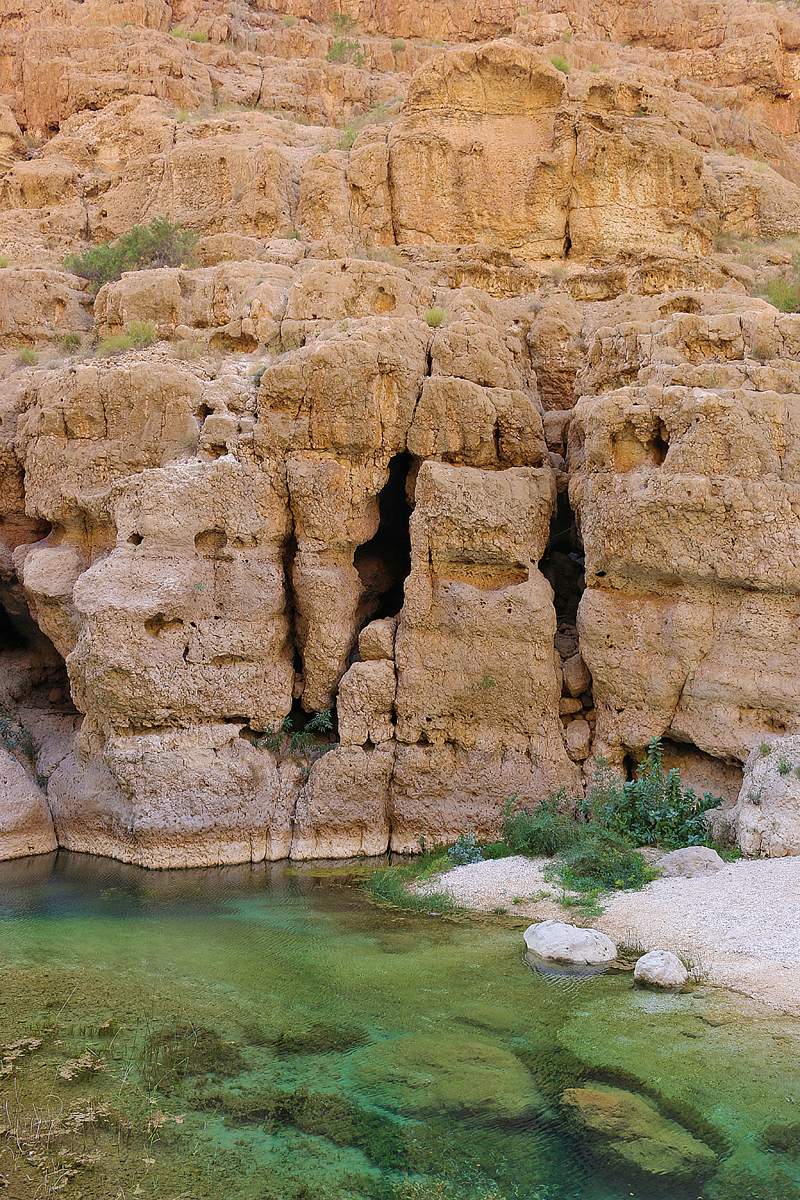
I especially liked viewing the shapes of the fissures in the sandstone wall…
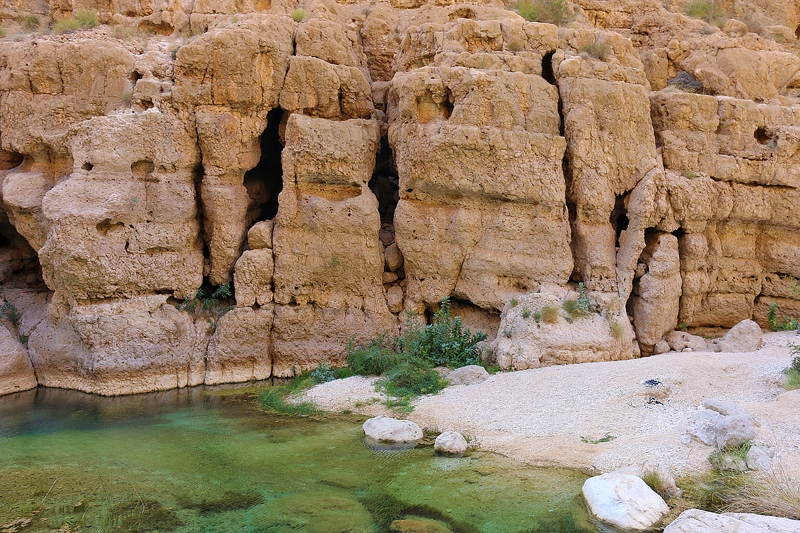
…as well as the terraced parts of the sandstone wall which clearly reveal the levels of water as it eventually carved out its niche in Wadi Shab over decades past.
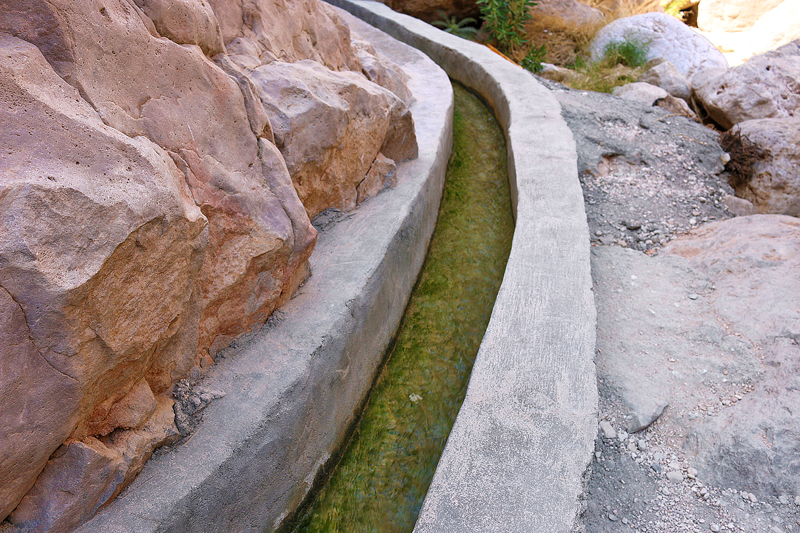
An aqueduct transports water through Wadi Shab.
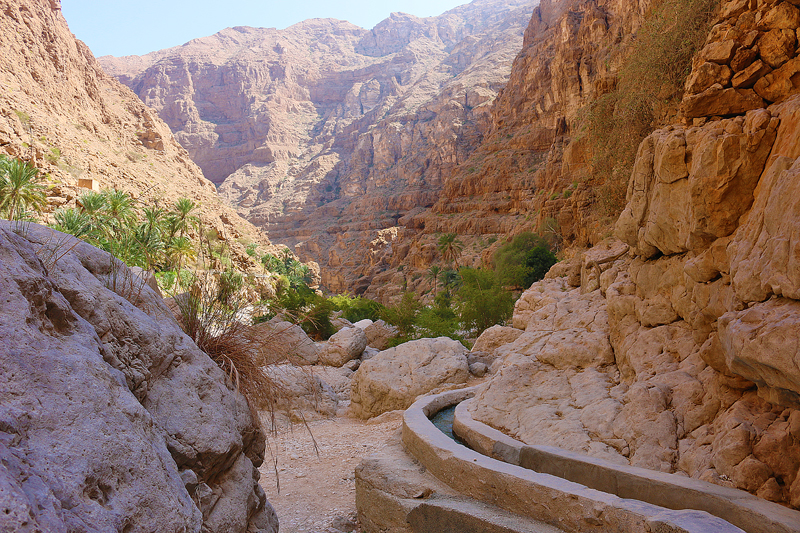
The falaj — or irrigation channel — helps with the flow of the water through some very rocky terrain in Wadi Shab.
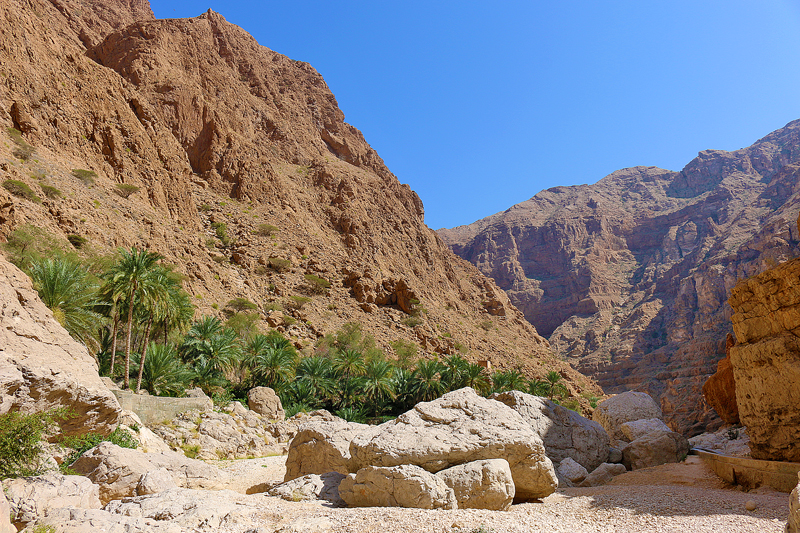
Some parts of the hike were rather easy, thanks to either hard flat surfaces, gravel, or sand…
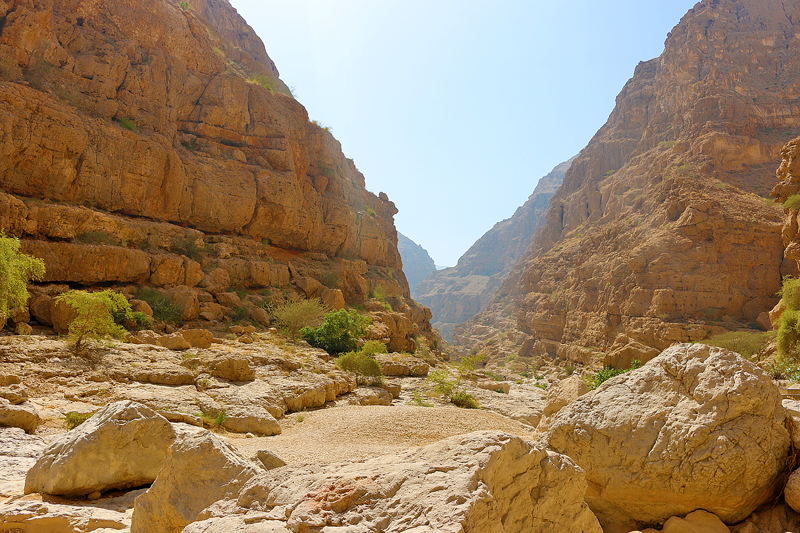
…while other parts of the hike require negotiating around rocks and crevasses.
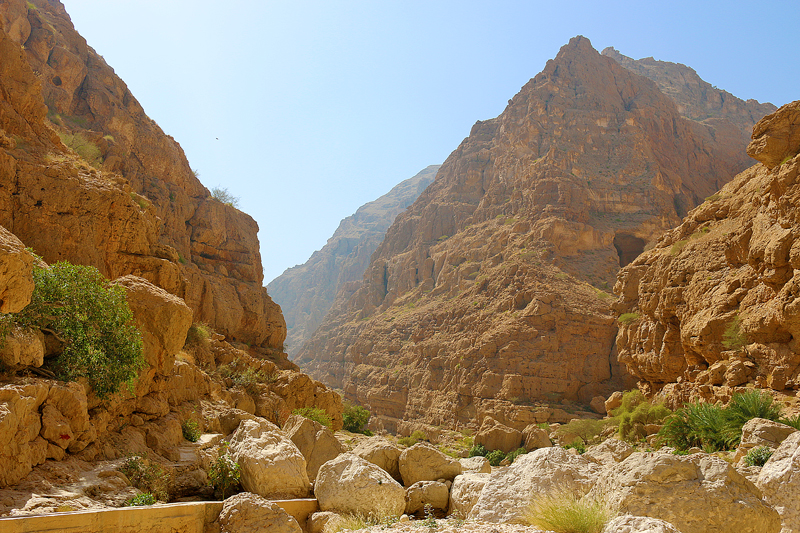
At some points during the hike, visitors are required to navigate over huge boulders in order to continue — which is not all that difficult for most people; but doing so will slow you down, so plan your time hiking in Wadi Shab accordingly.
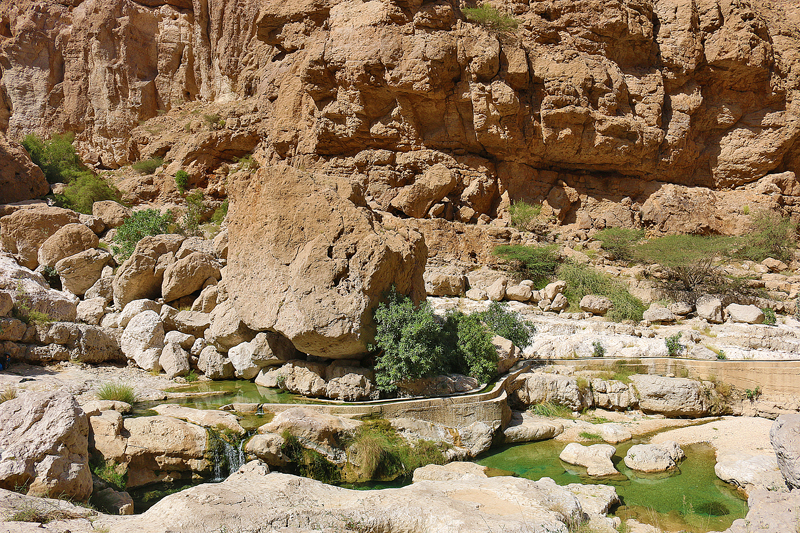
Definitely do not consider hiking in Wadi Shab wearing “flip-flop” sandals; and I would not recommend doing it barefoot either due to the hot ground and unstable rocks.
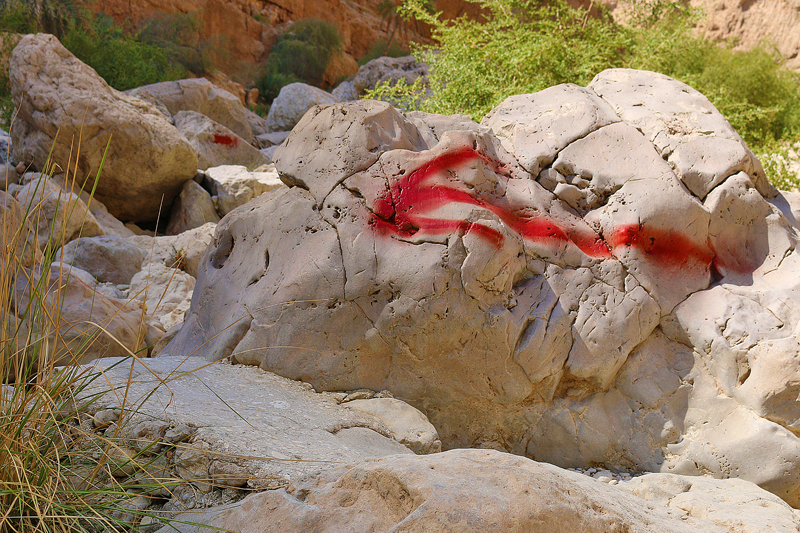
The trail can get so rocky as to not even resemble a trail anymore; so red arrows were spray painted on some of the rocks to alert visitors as to which direction to follow.
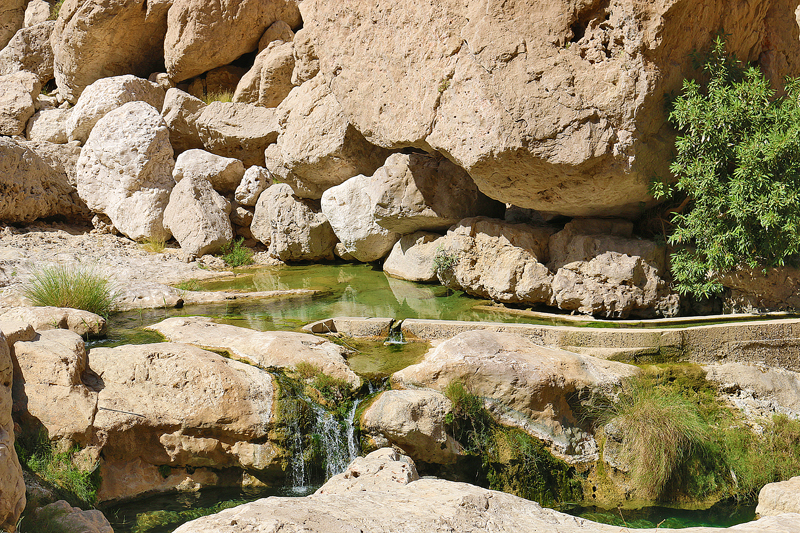
One section of the irrigation channel begins at this point, with a small waterfall in front of it…
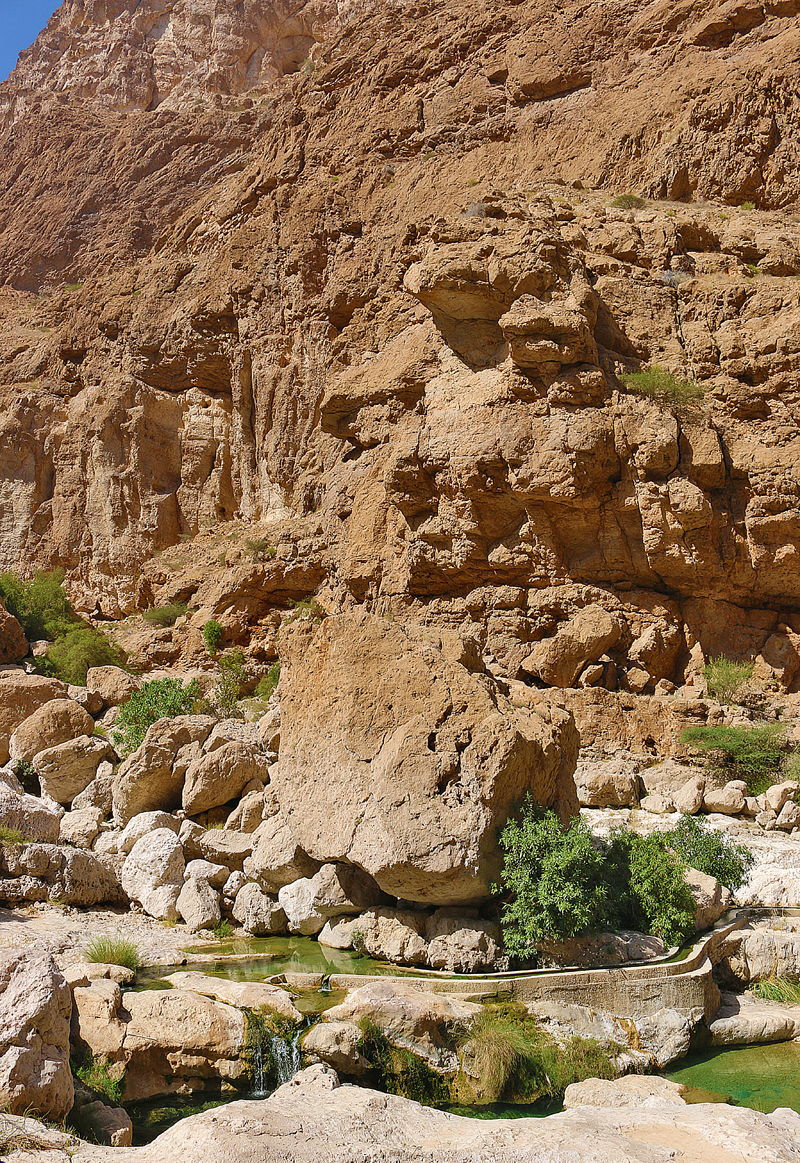
…and winds its way through part of the gorge.
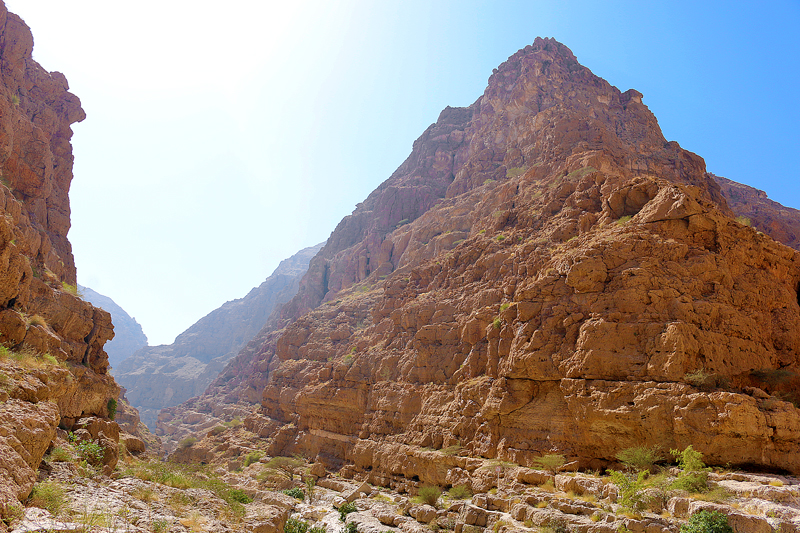
Stunning views of the vistas are simply breathtaking.
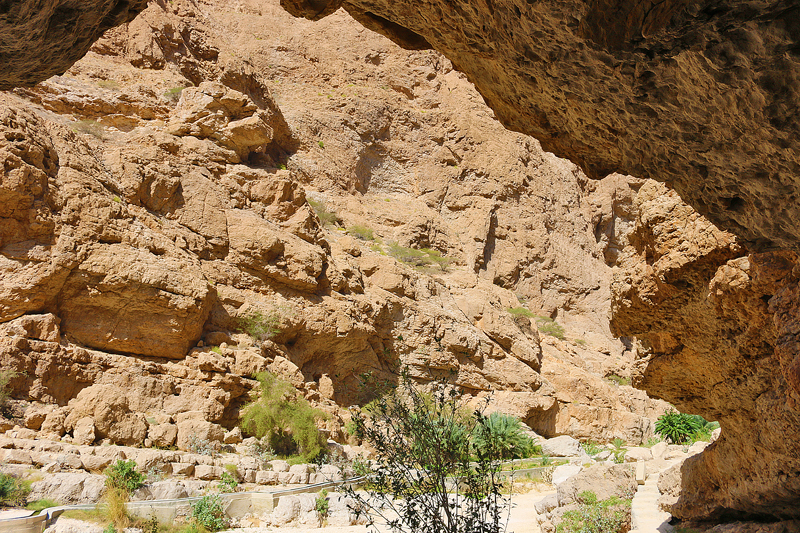
Respite from the hike — and the hot sun — can be found in a shallow cave of sorts…
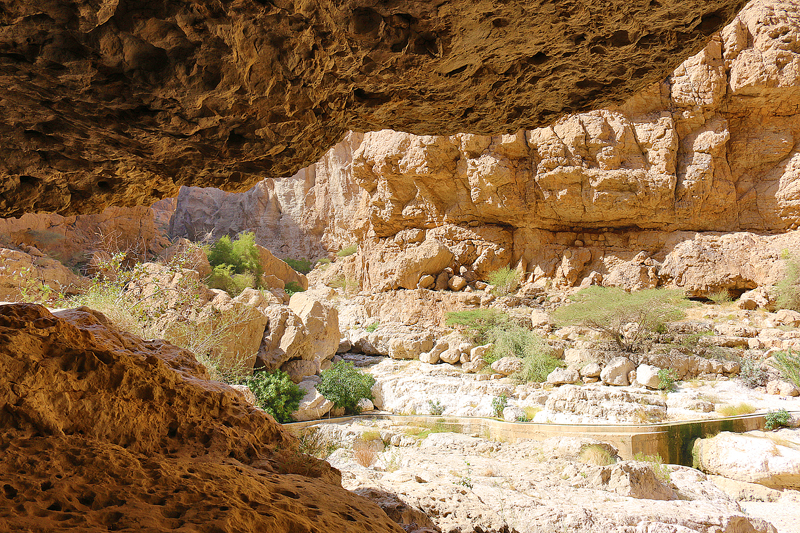
…with a view of another section of the irrigation channel.
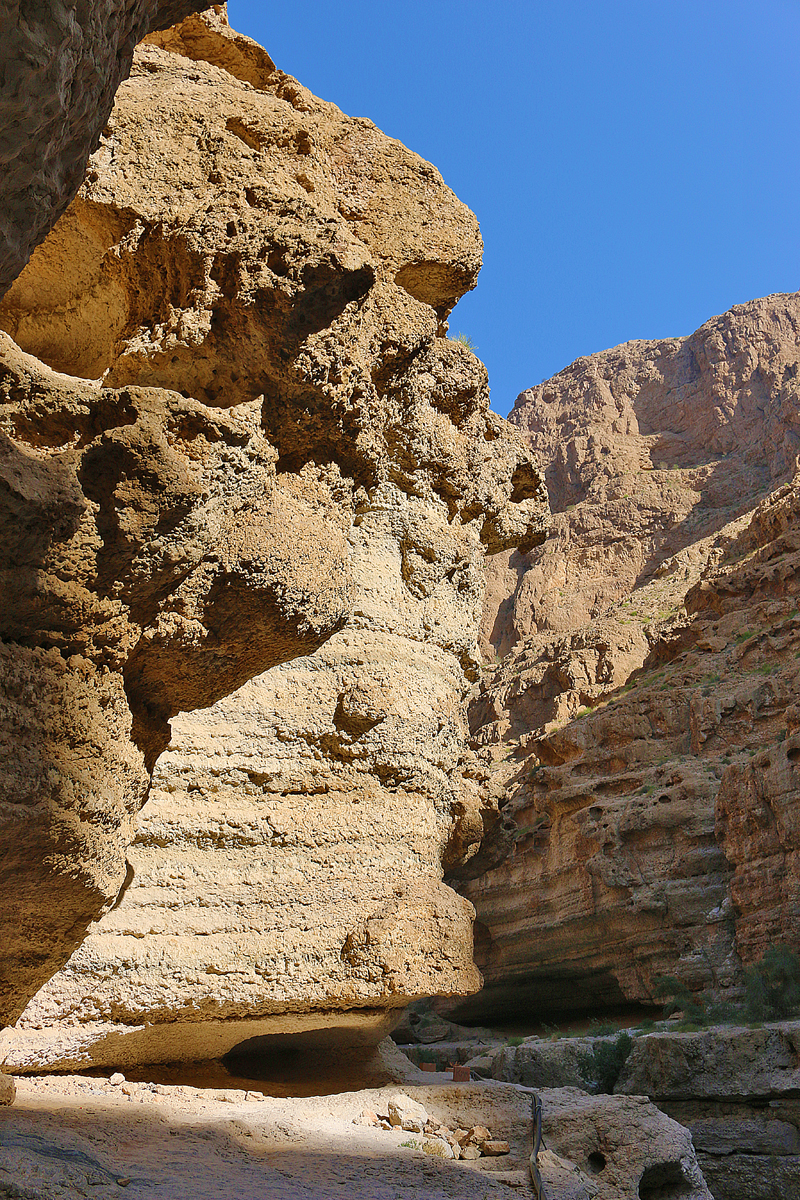
The formations of the walls of the gorge were striking to me…
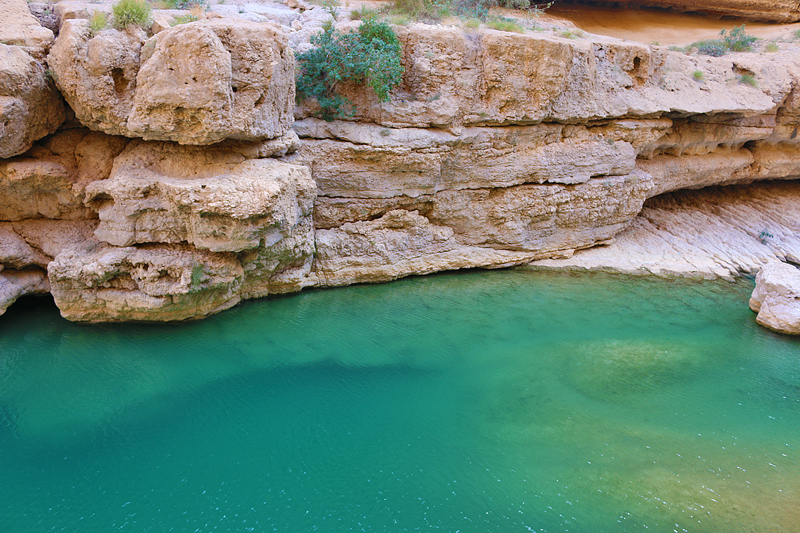
…combined with yet another tranquil pool of turquoise green water…
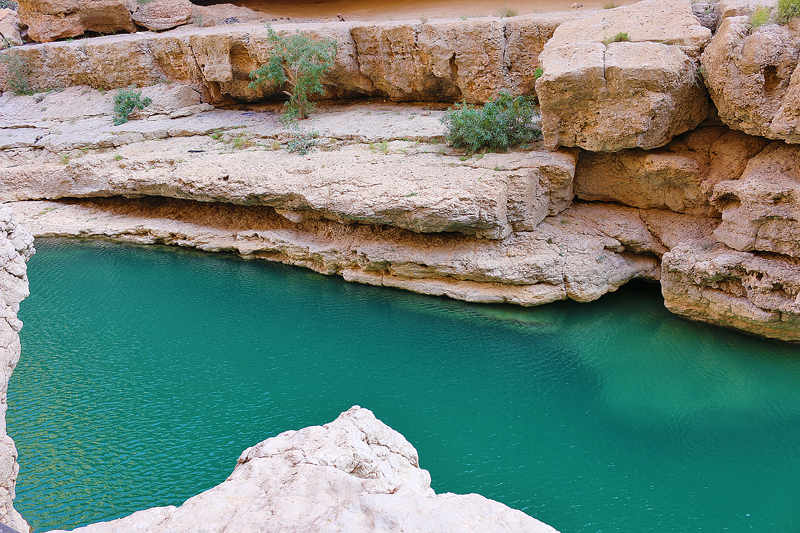
…and the varying colors of layered sandstone.
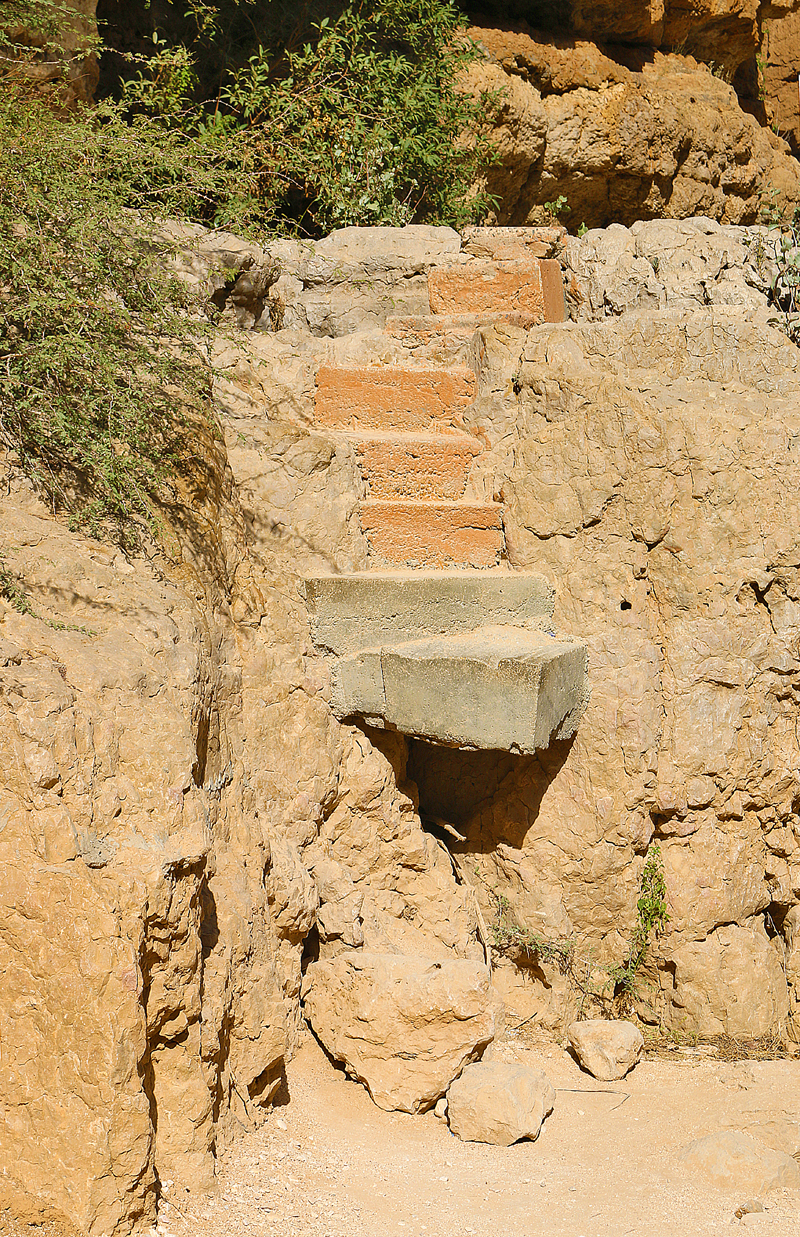
This stairway was a little difficult to navigate because it is technically incomplete, with loose large rocks instead of firm steps at its bottom. For the purpose of scale, the third step from the bottom is approximately the height of an average person.
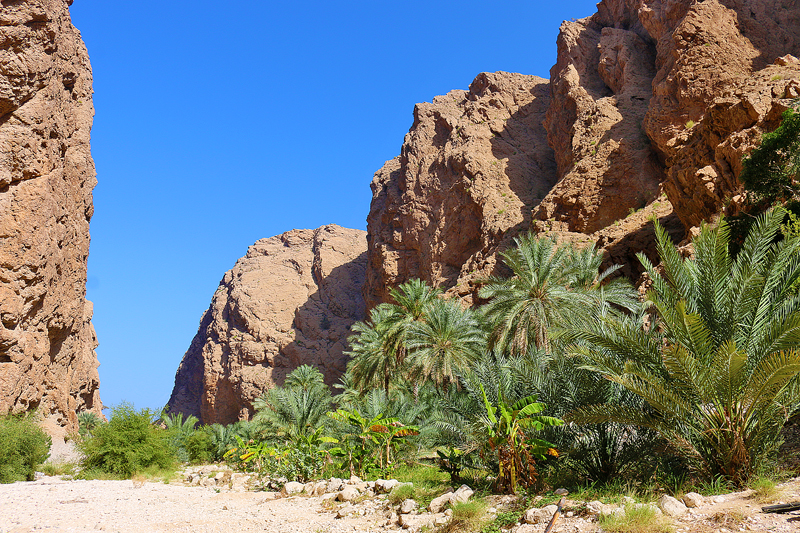
Another grove of palm trees soften the otherwise rugged landscape.
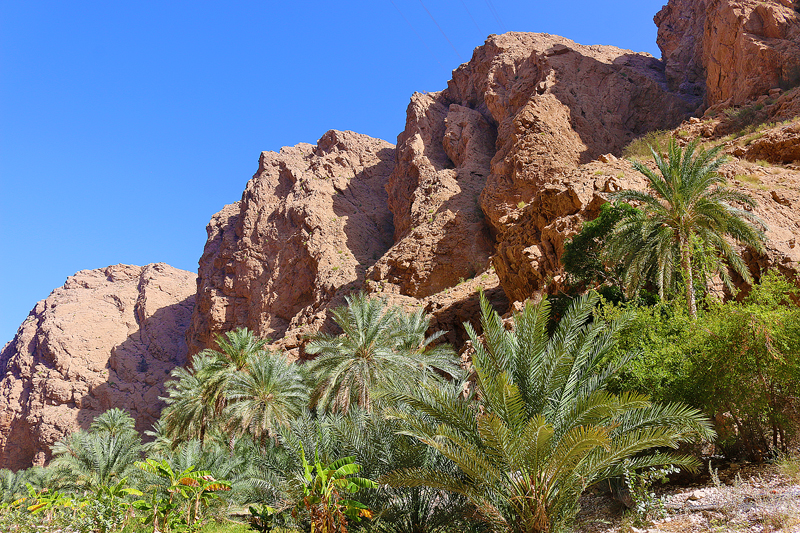
Summary
At approximately three kilometers each way or six kilometers round trip, the trek inland at Wadi Shab consumed at least an hour of my time; and it would have taken up less of my time had I not stopped to take so many photographs and admire the more picturesque areas of my hike…
…and towards the end of my trek inland, I discovered…
All photographs ©2015 by Brian Cohen.
